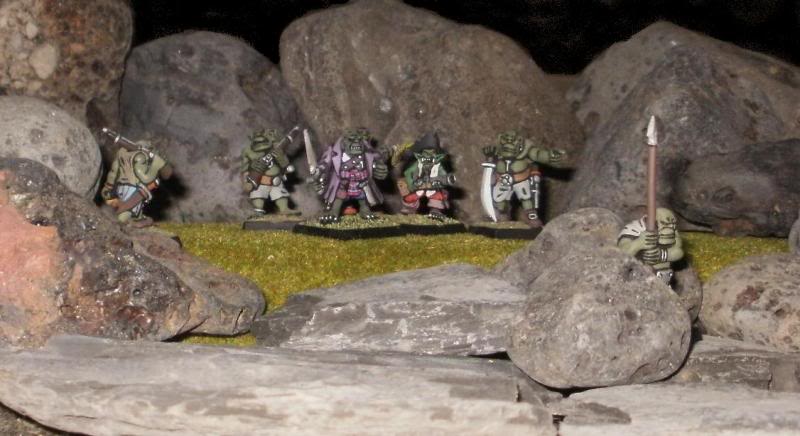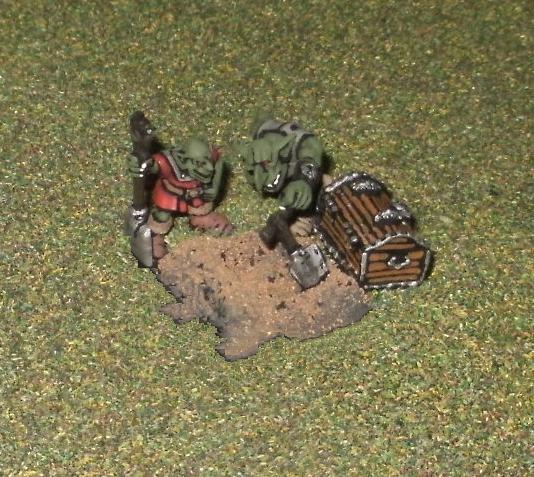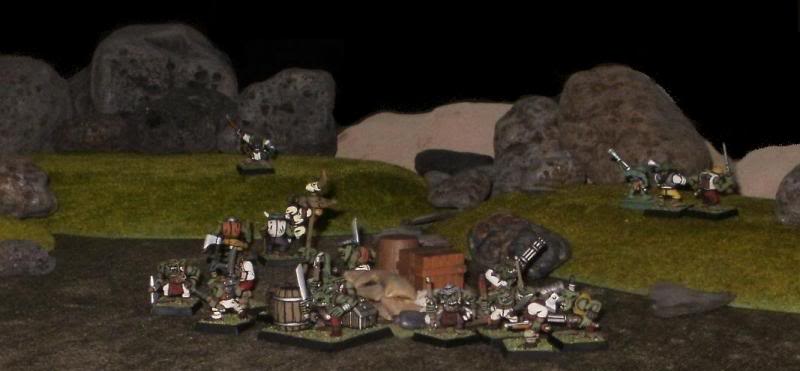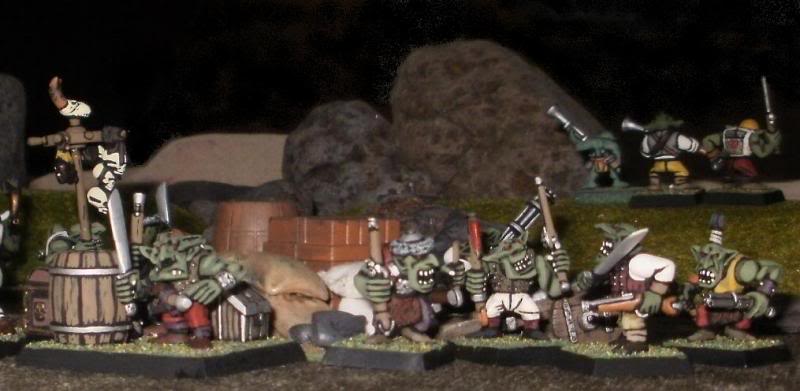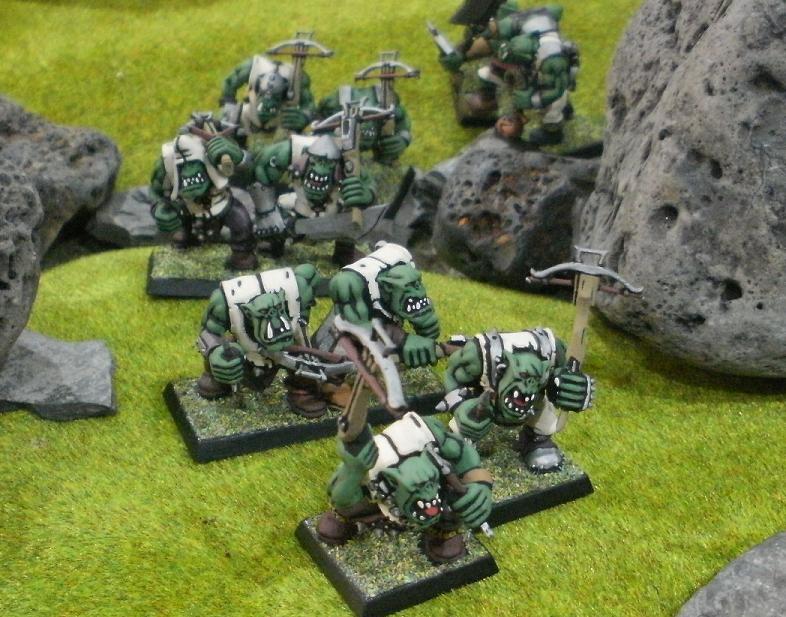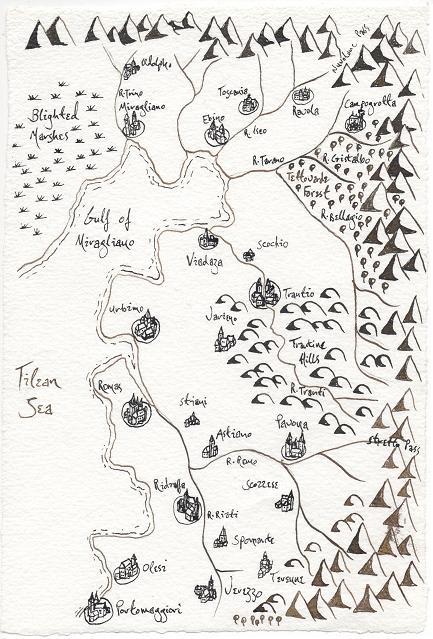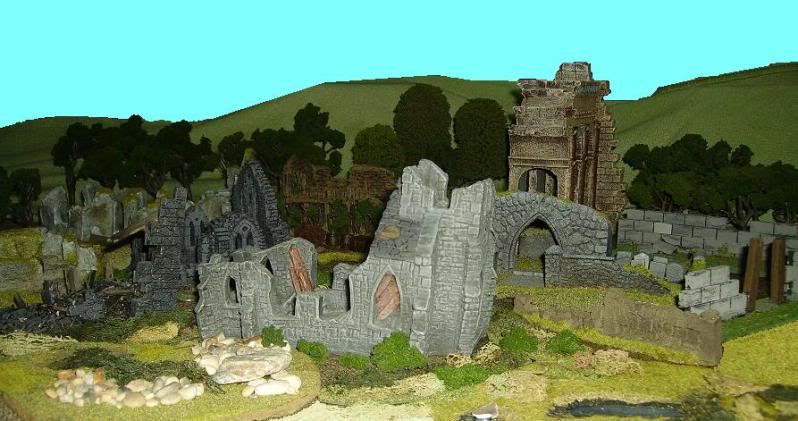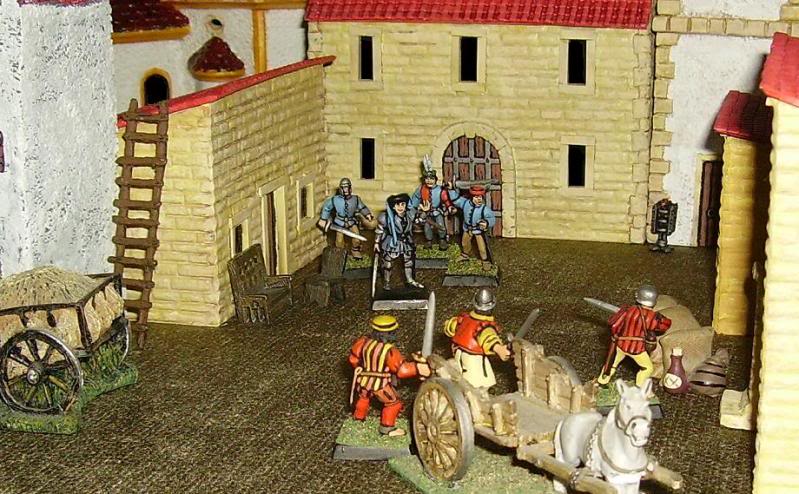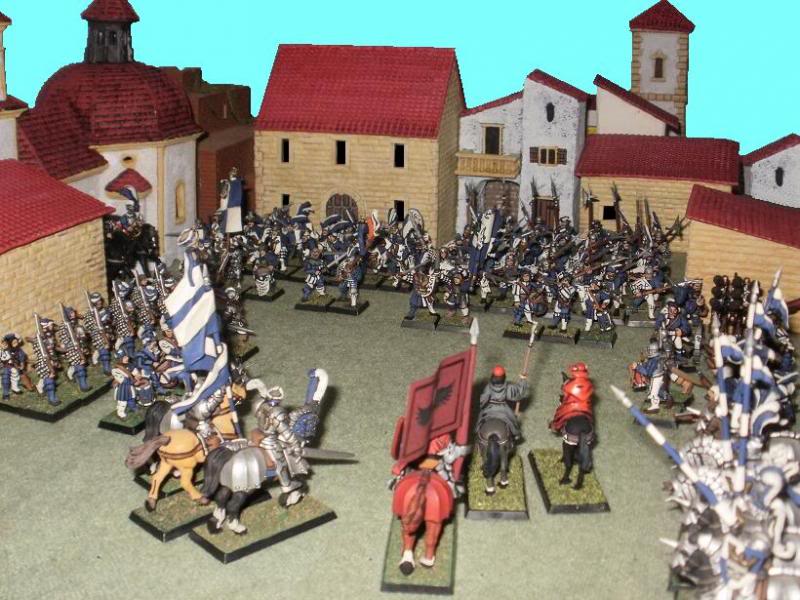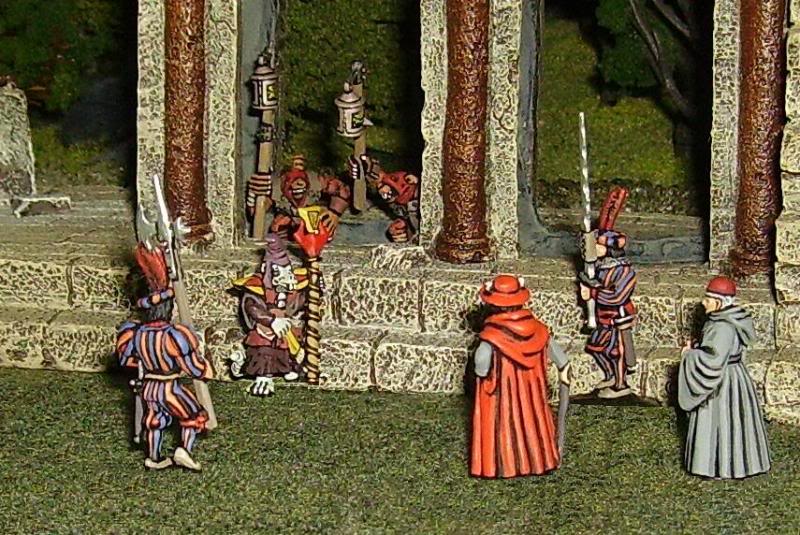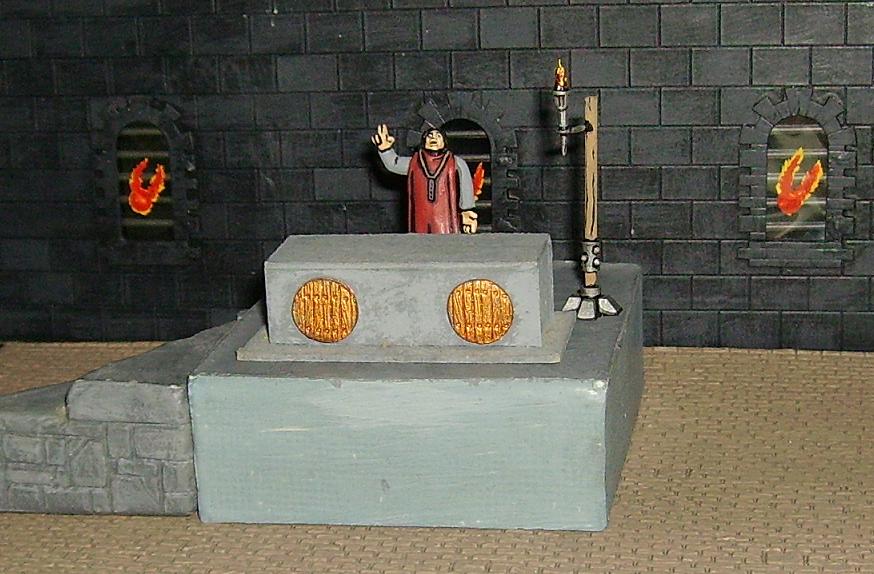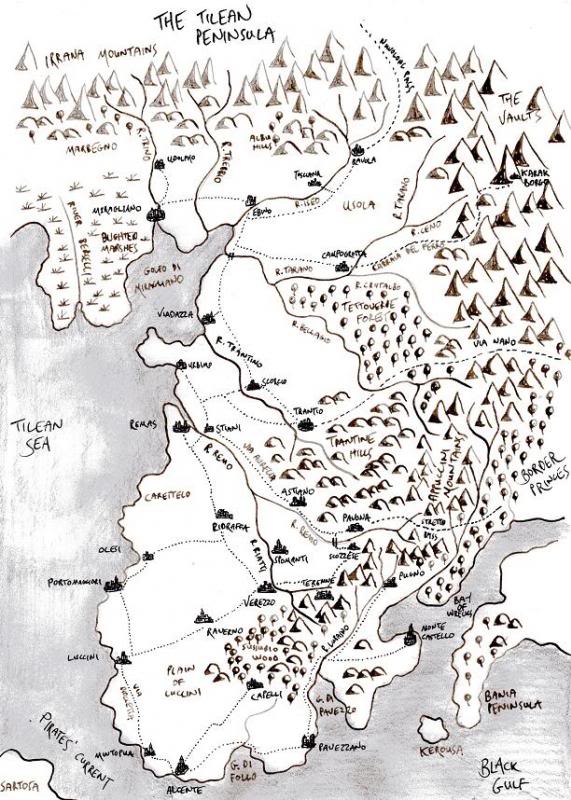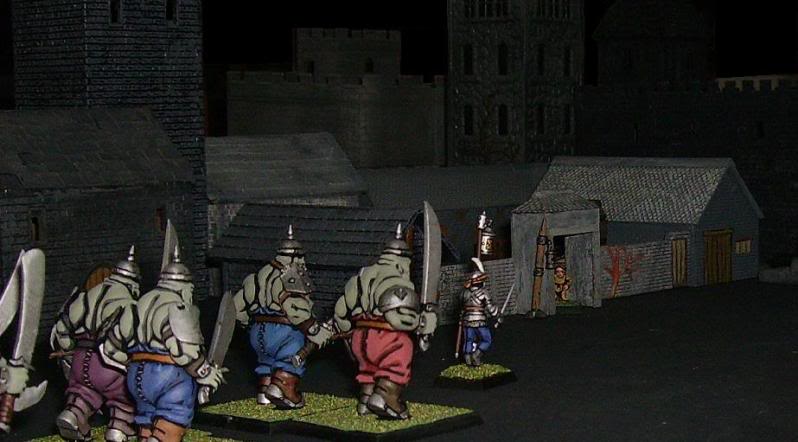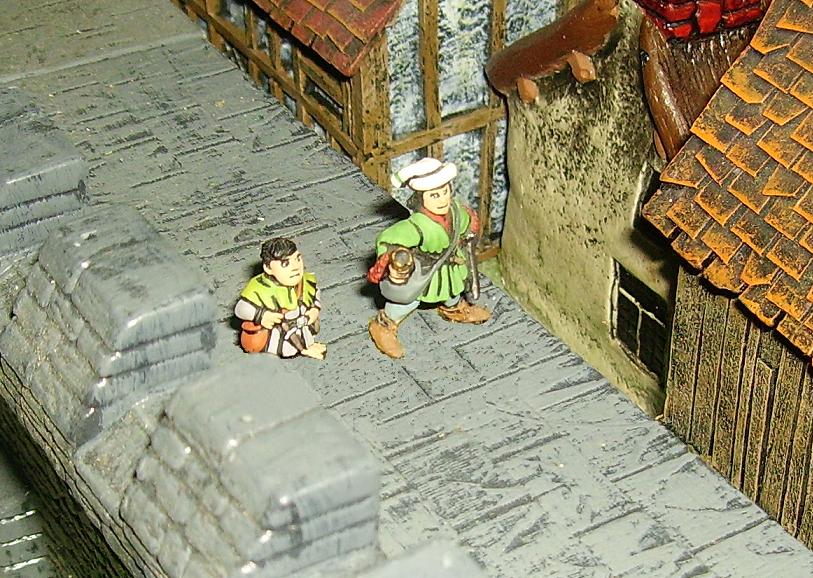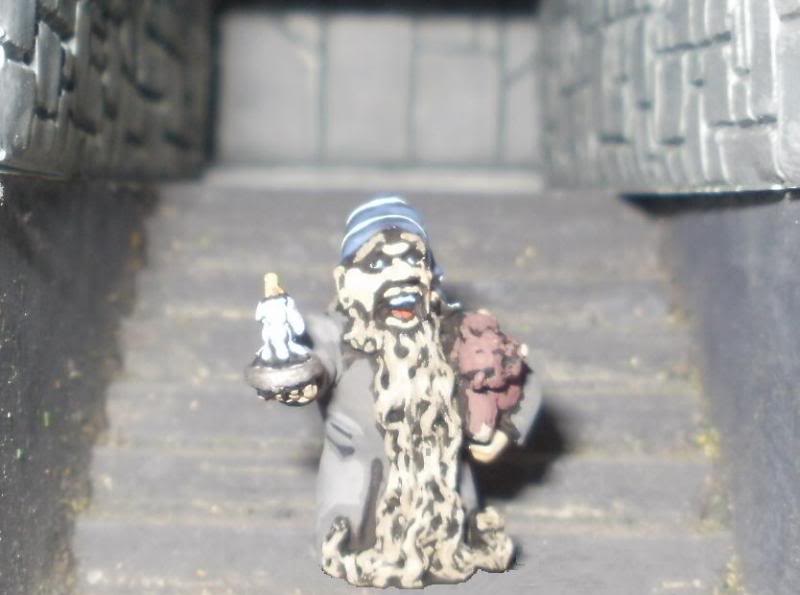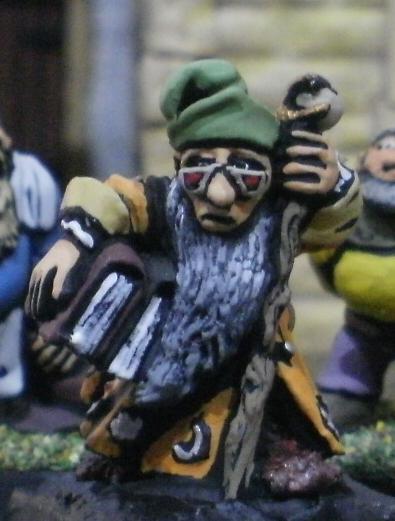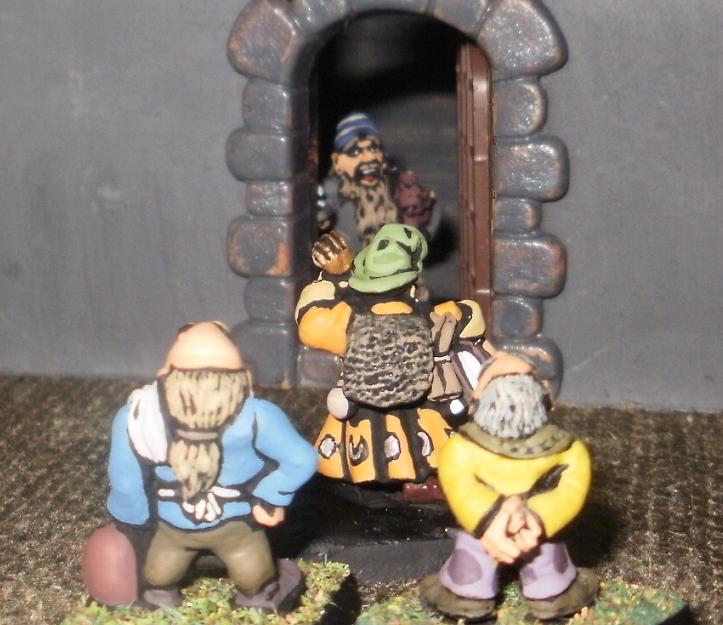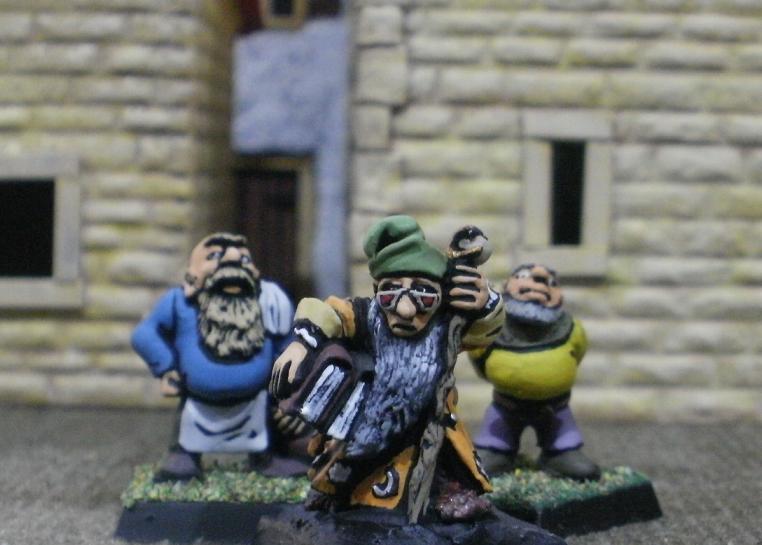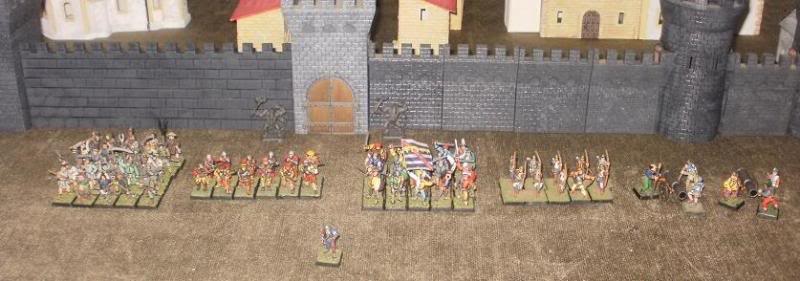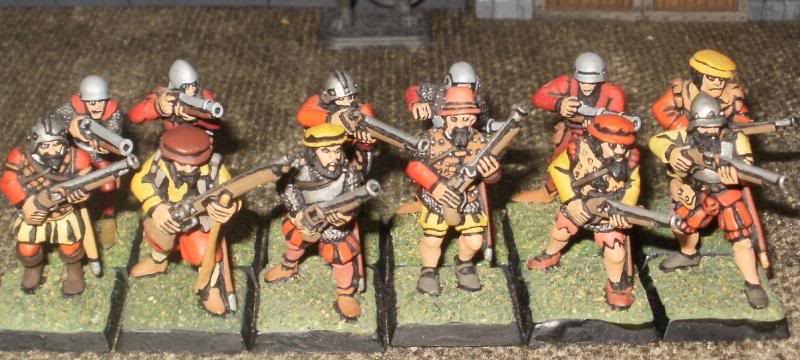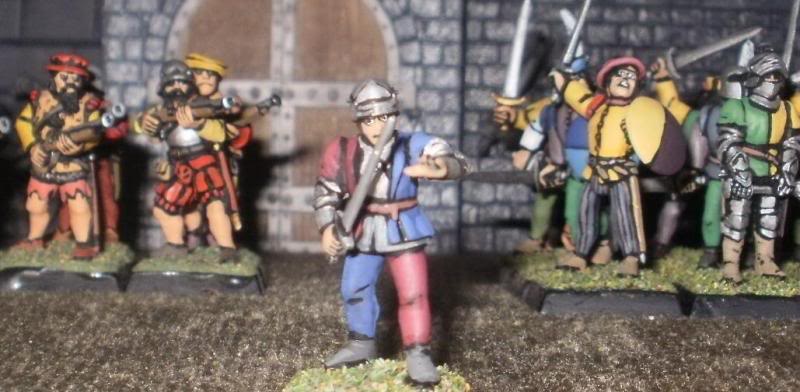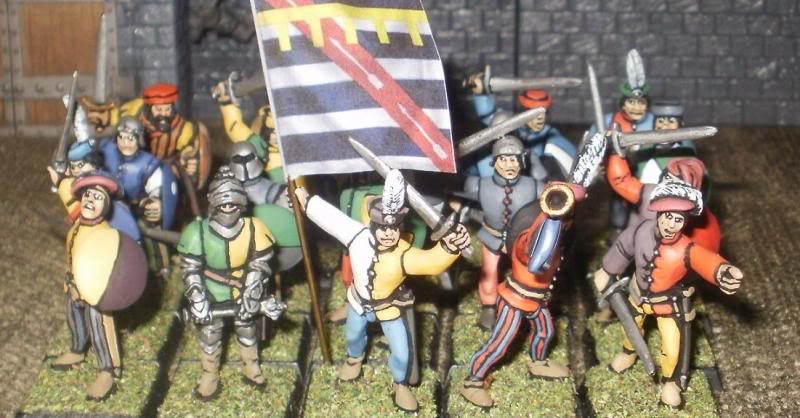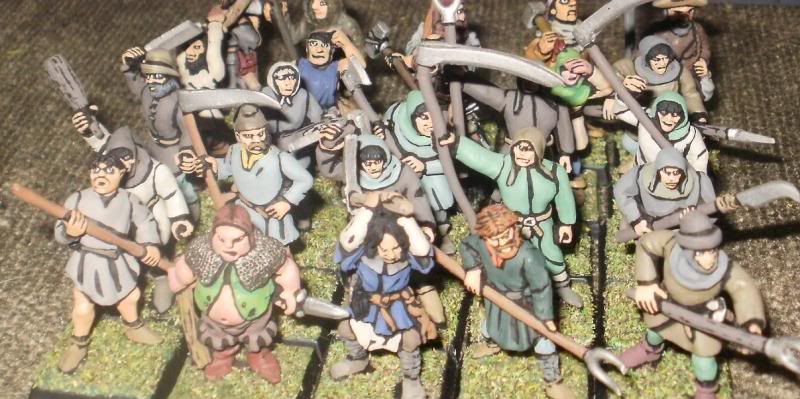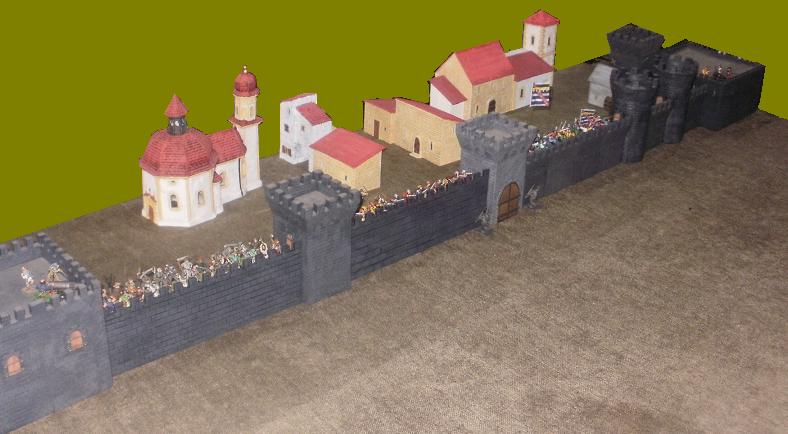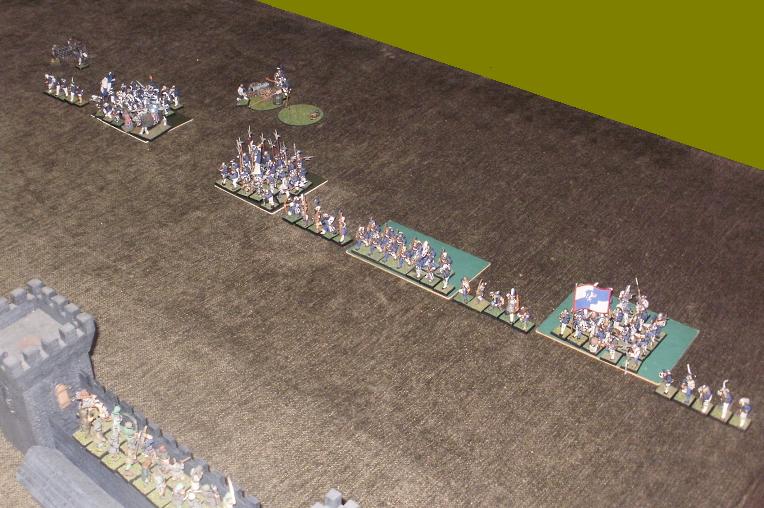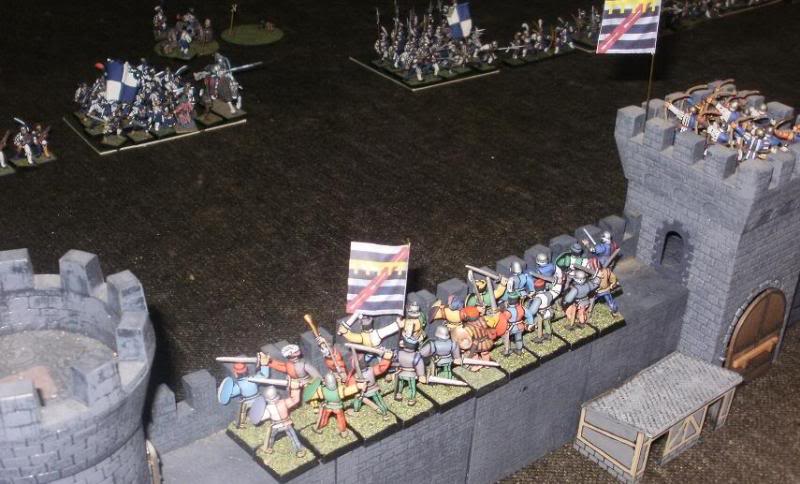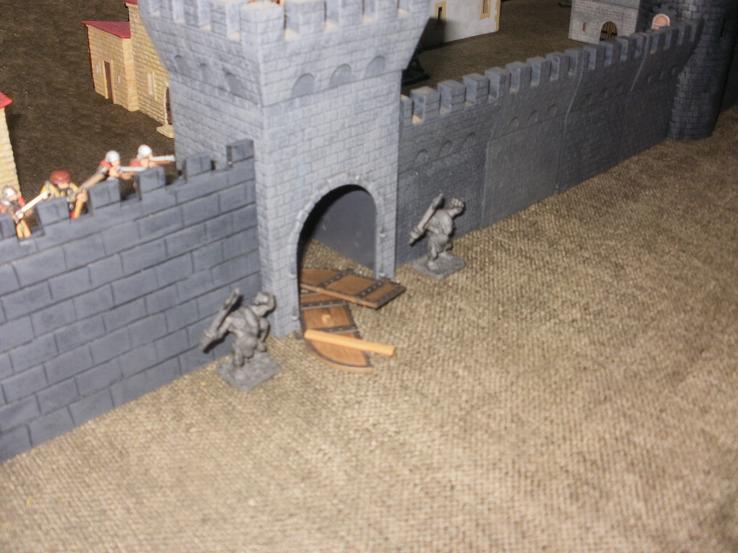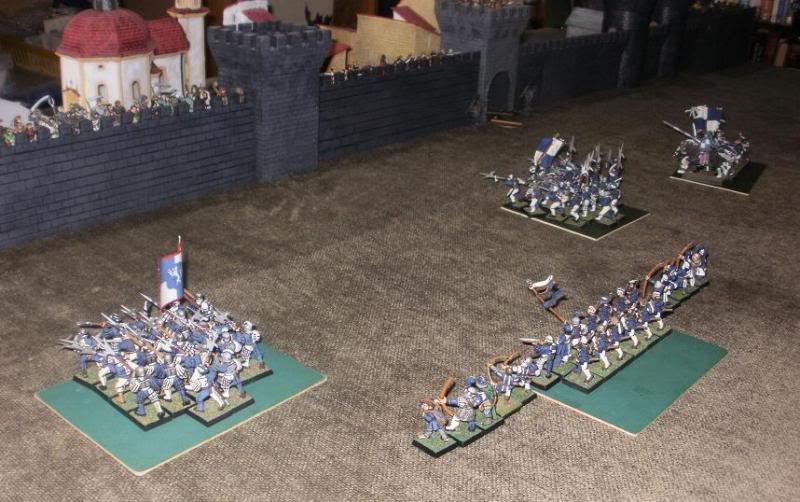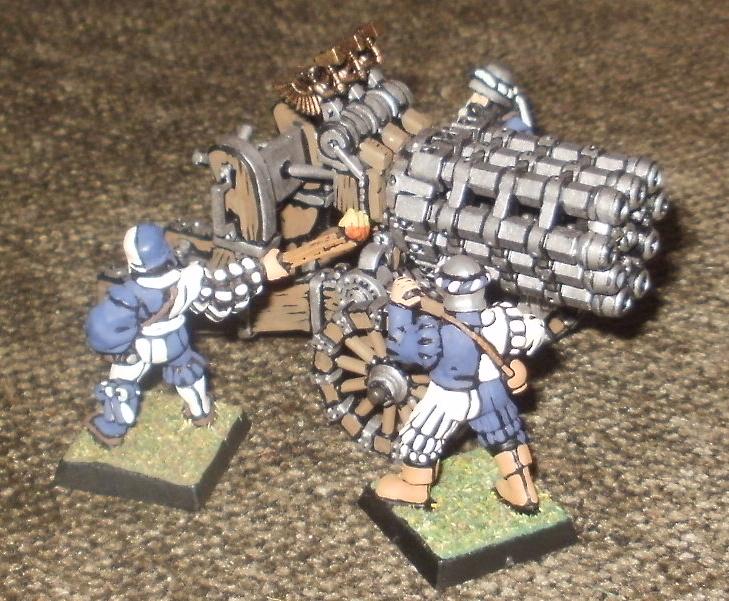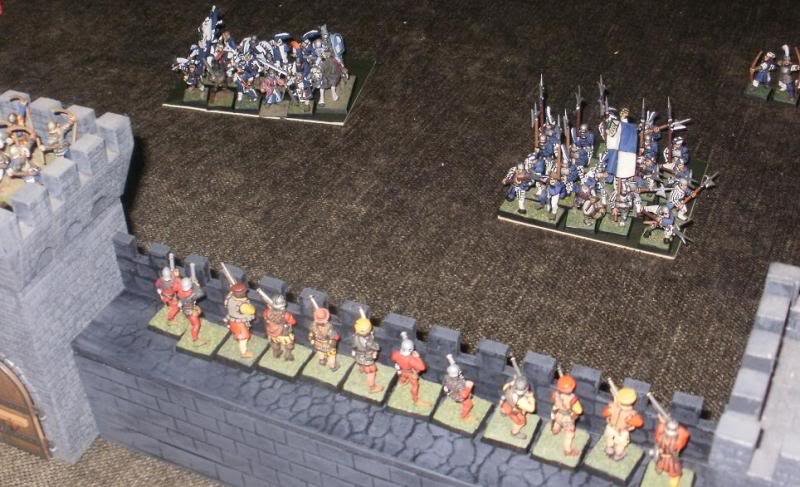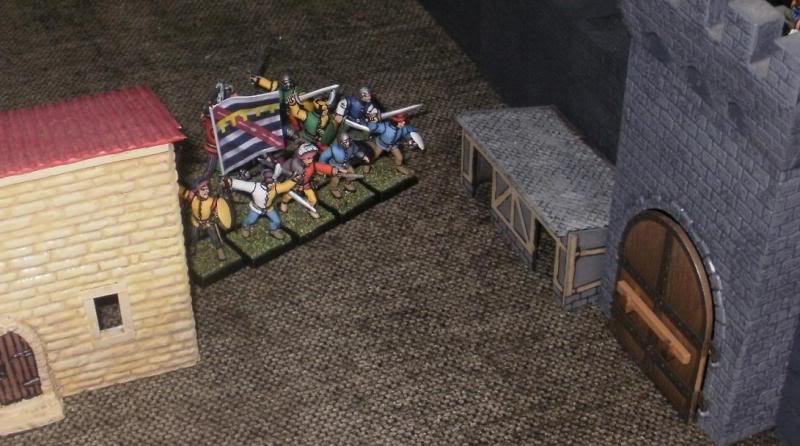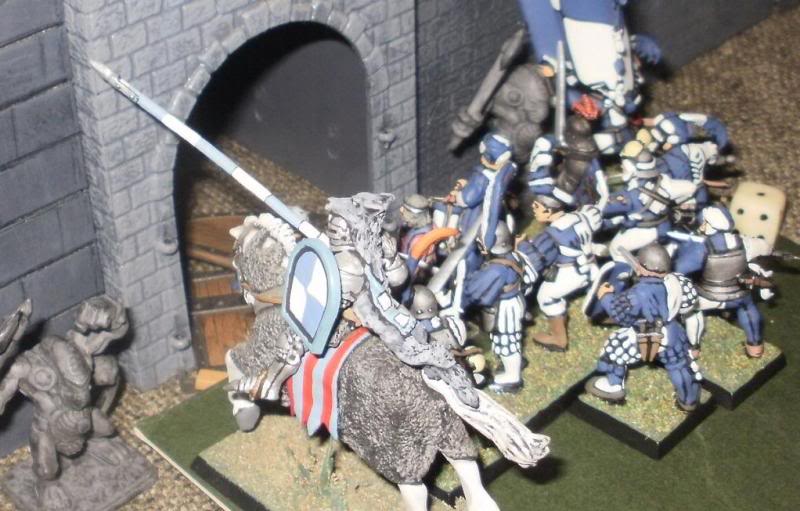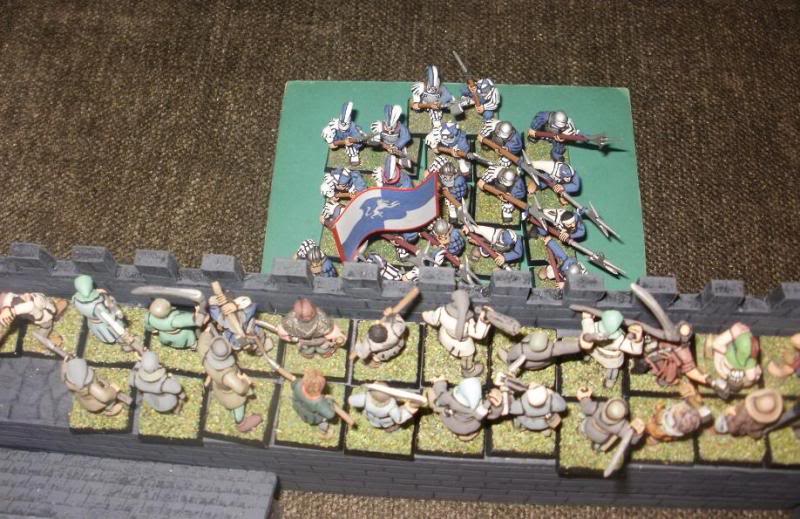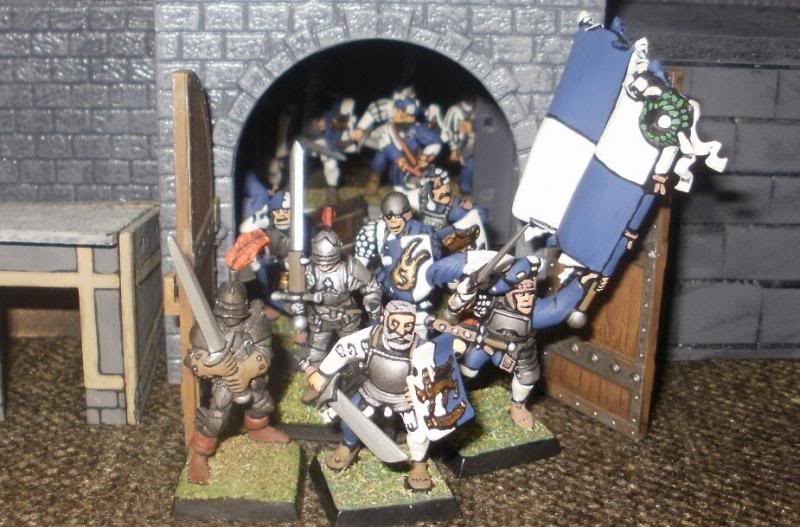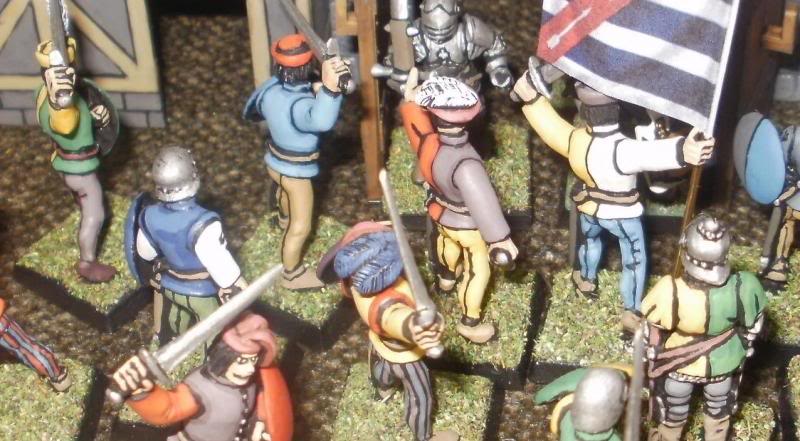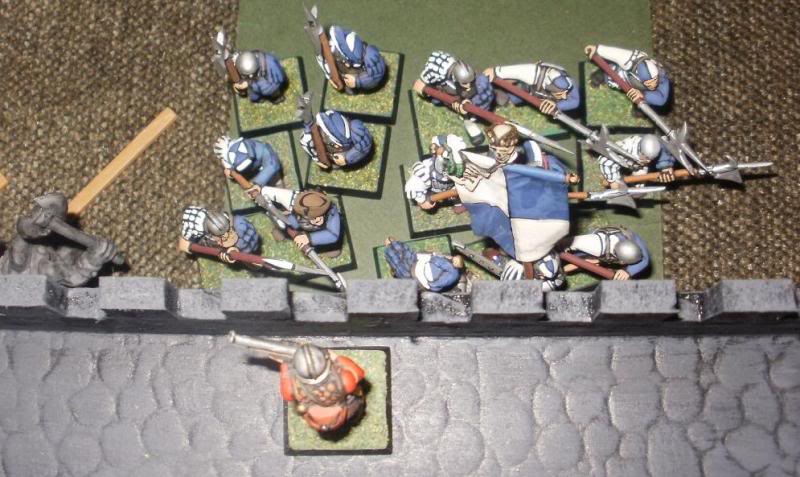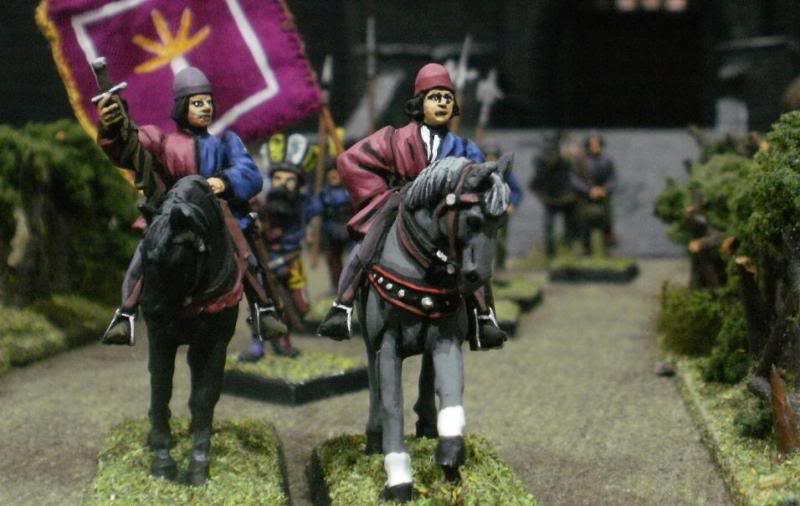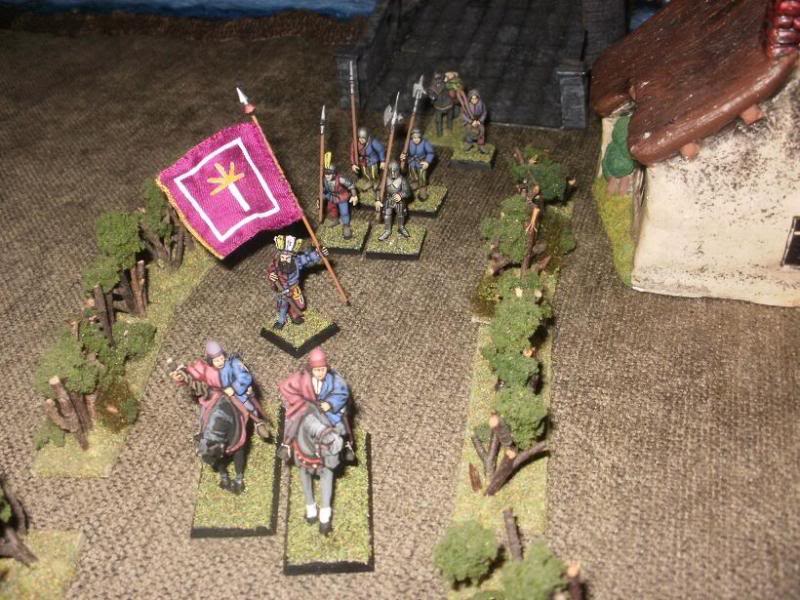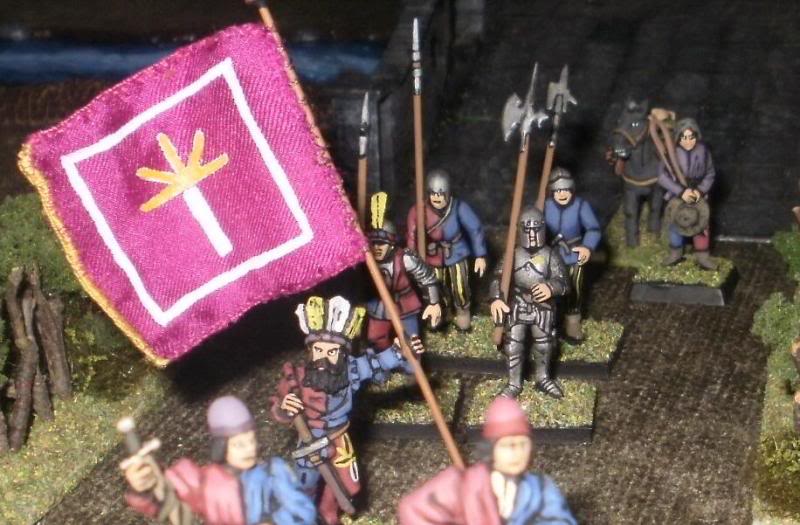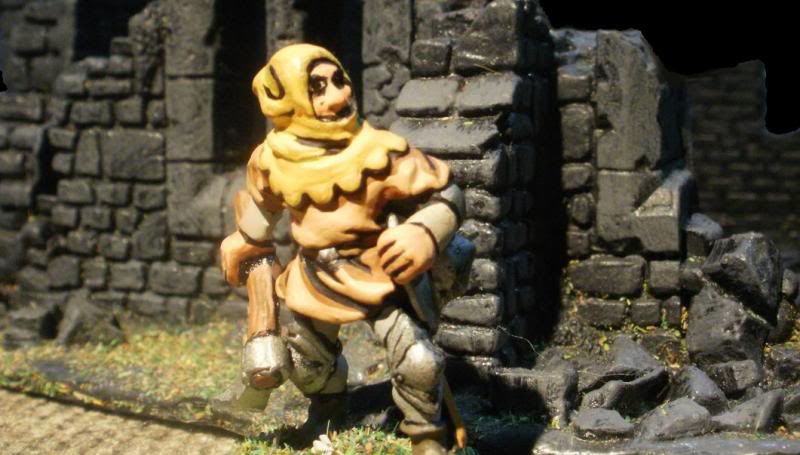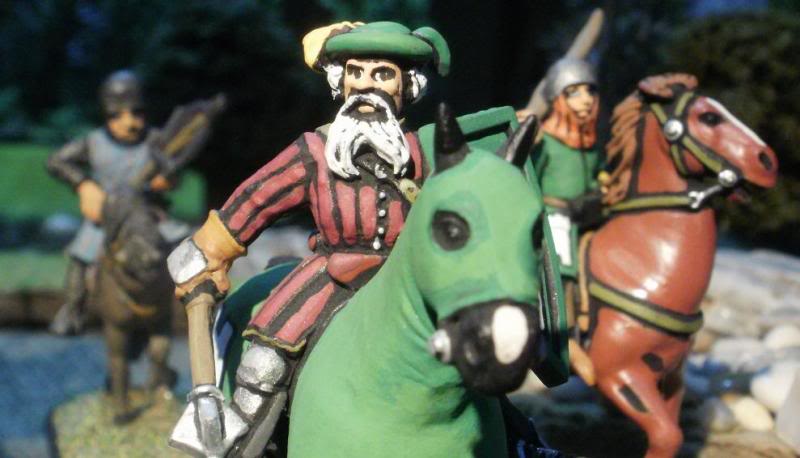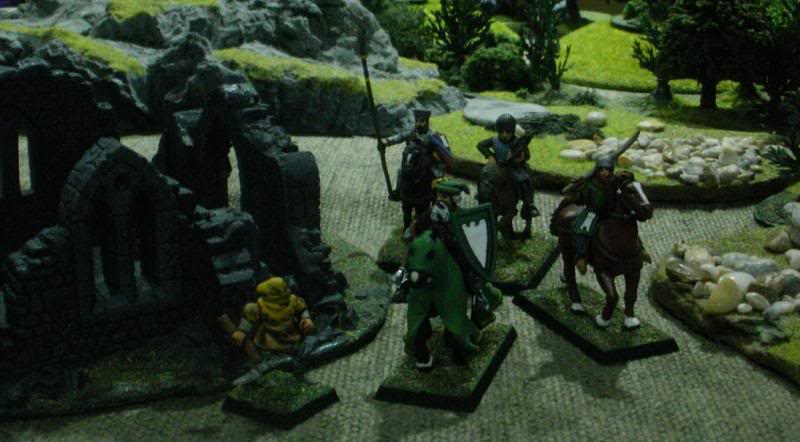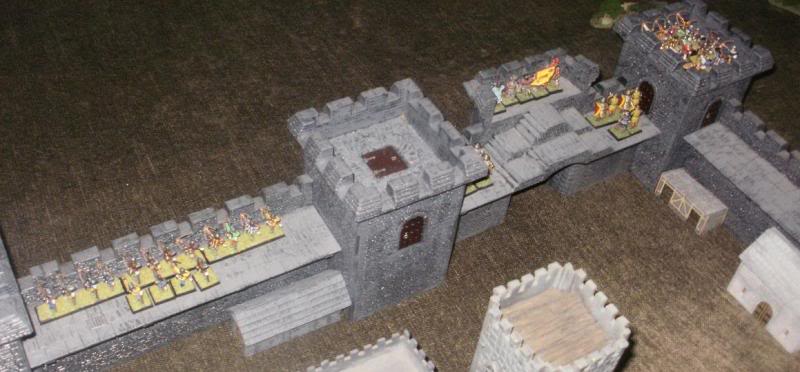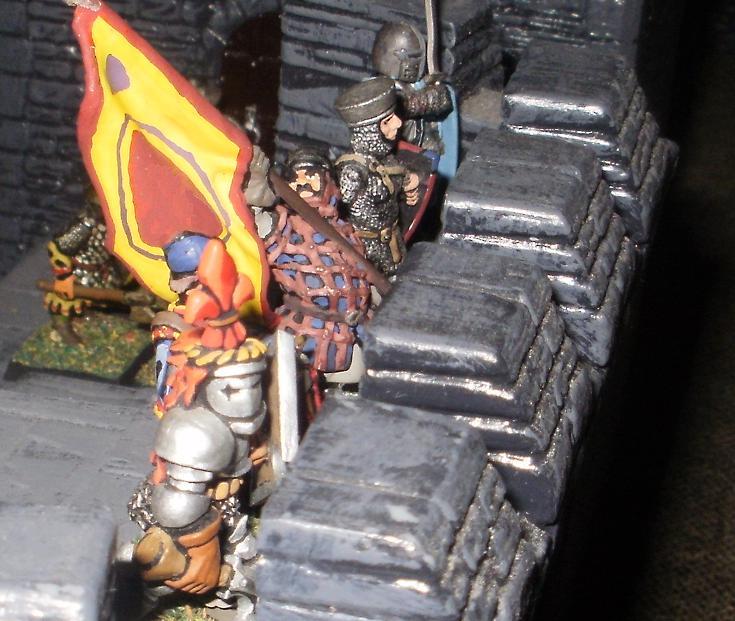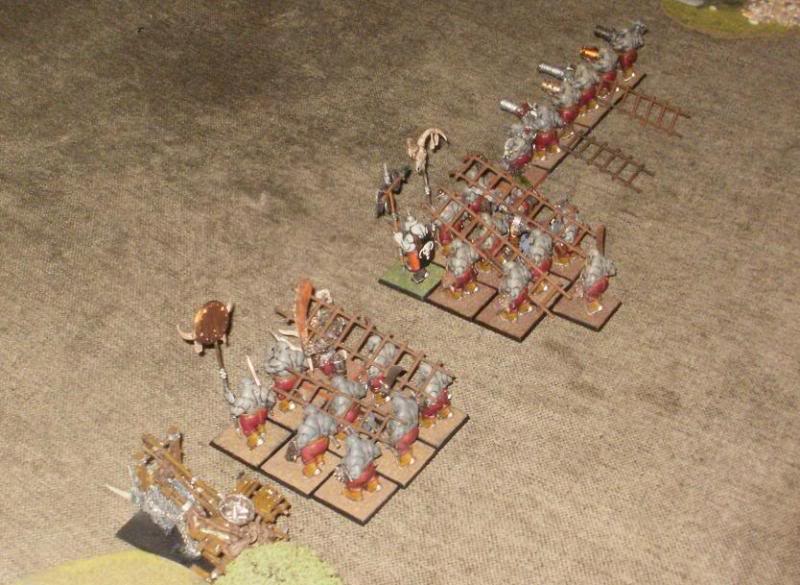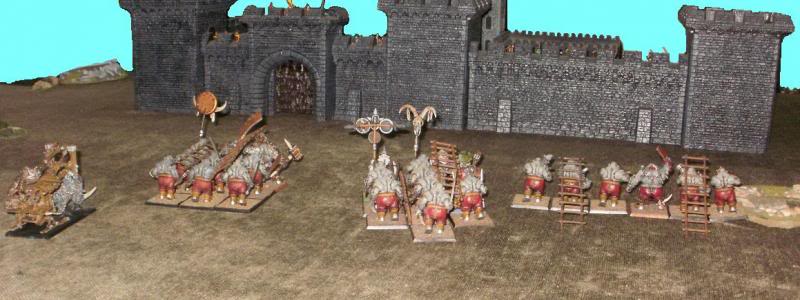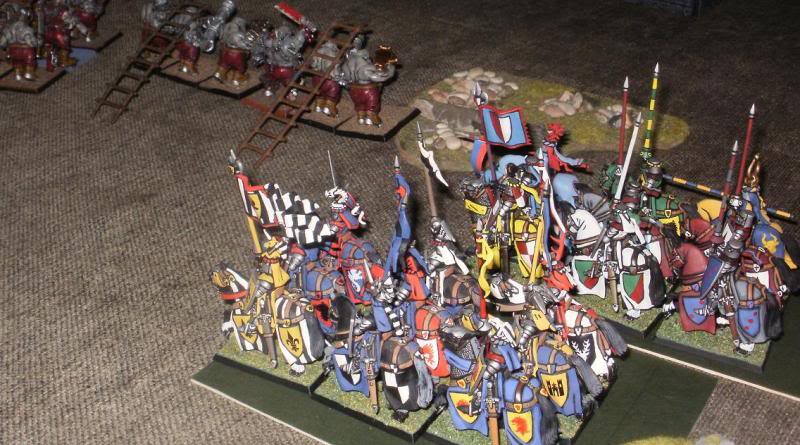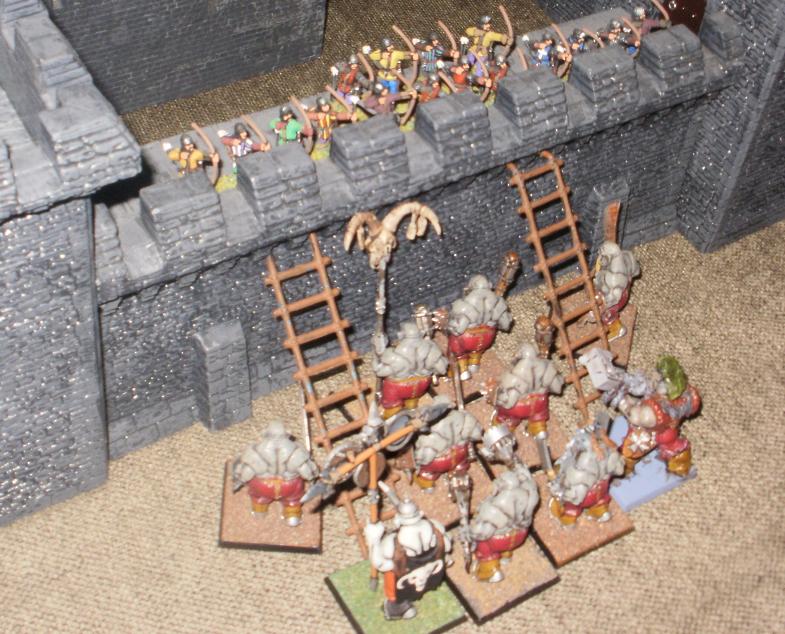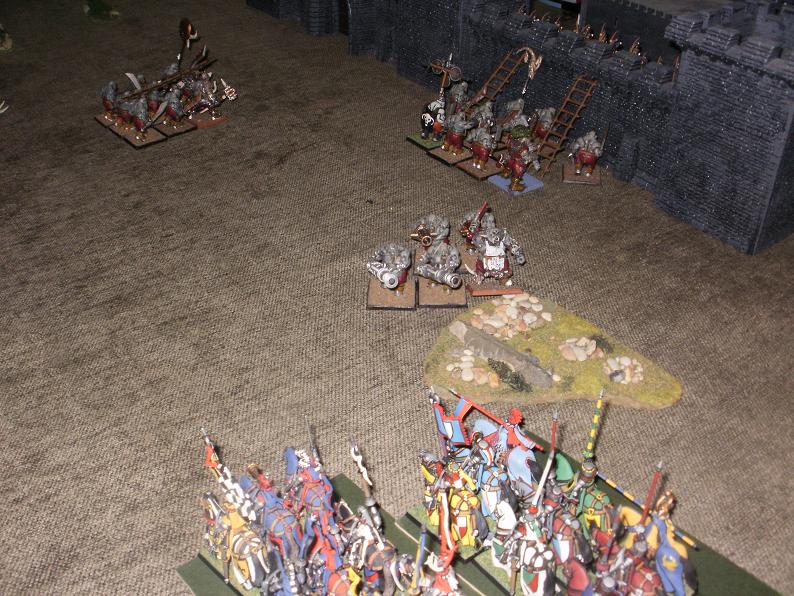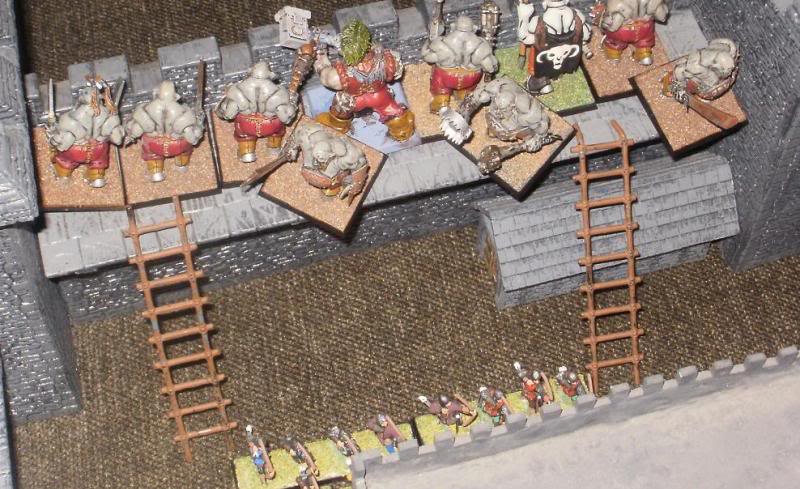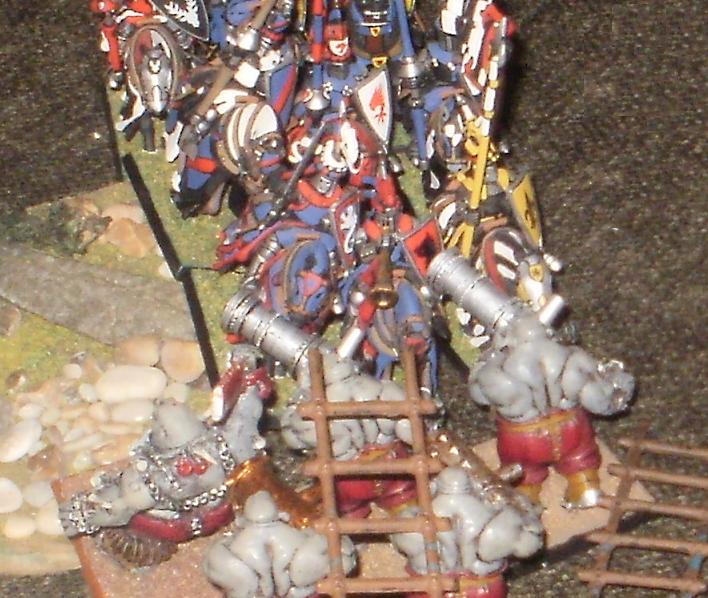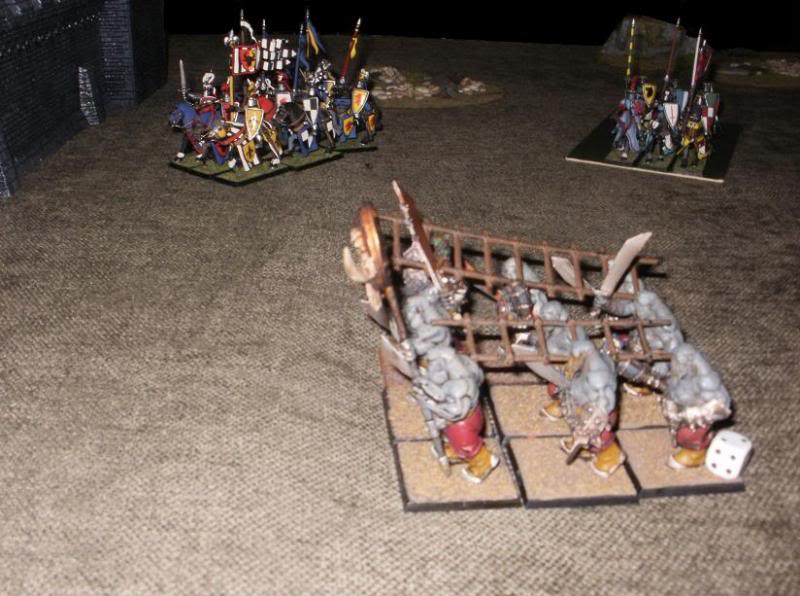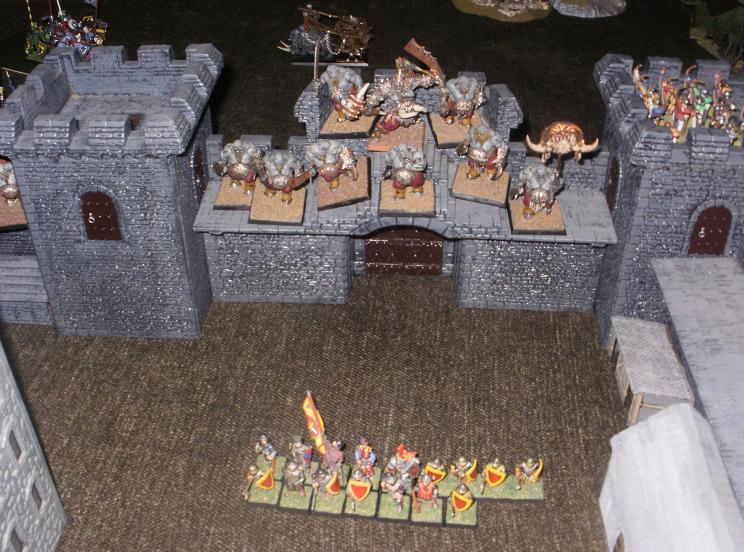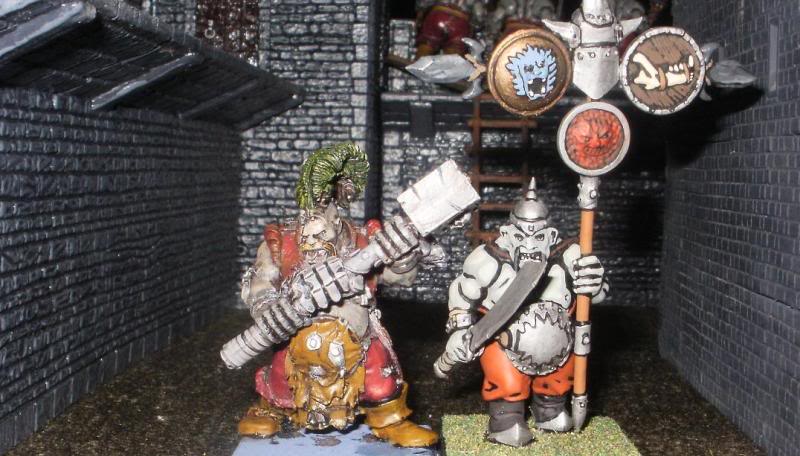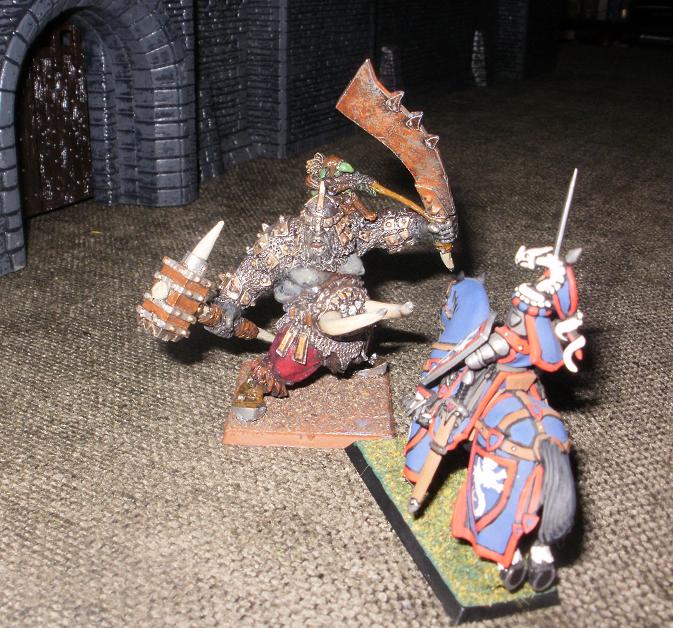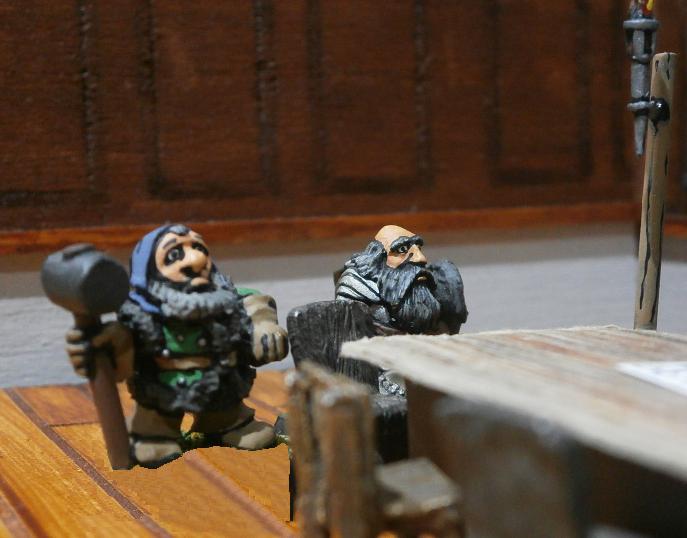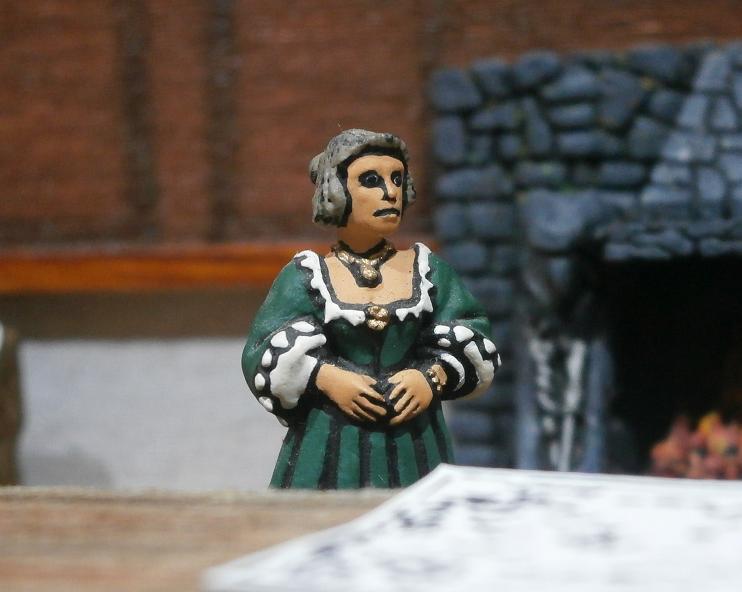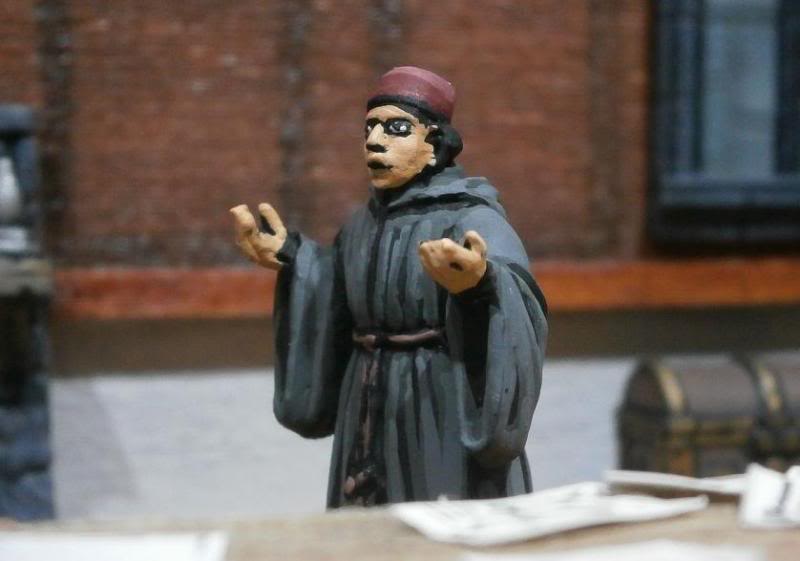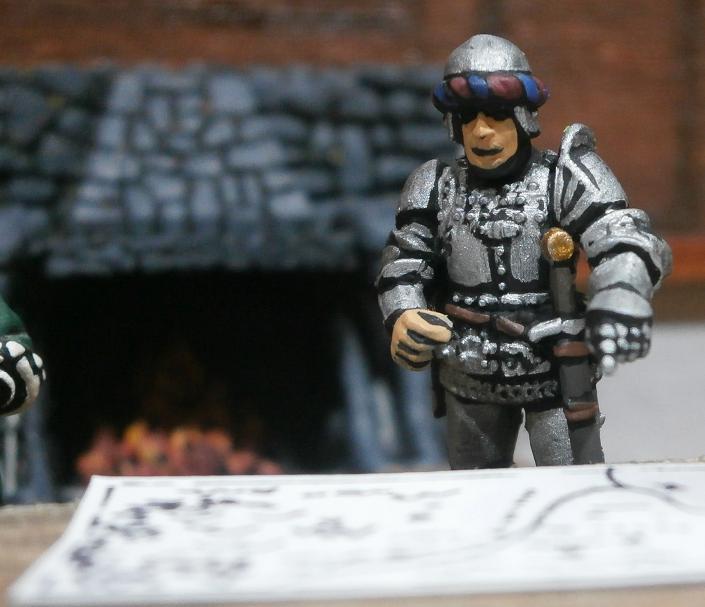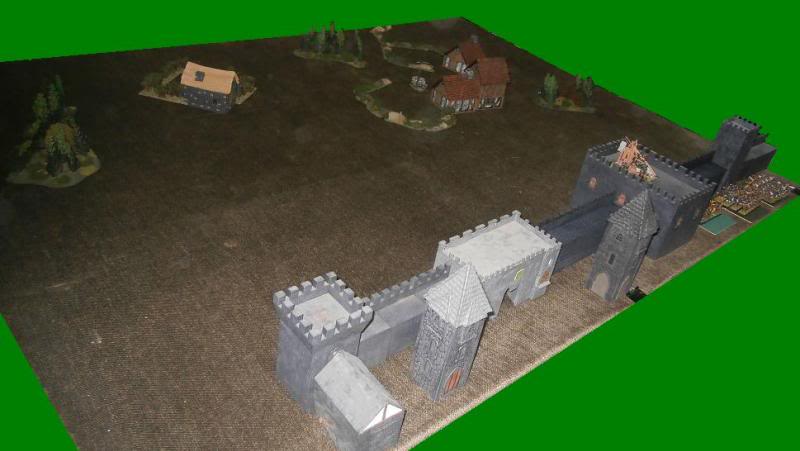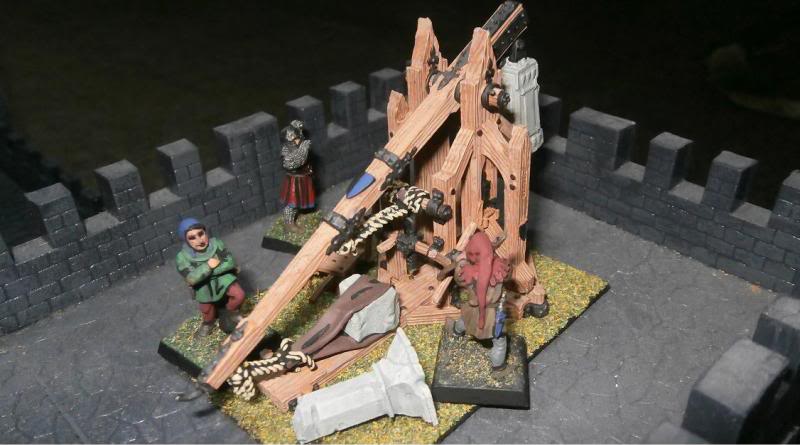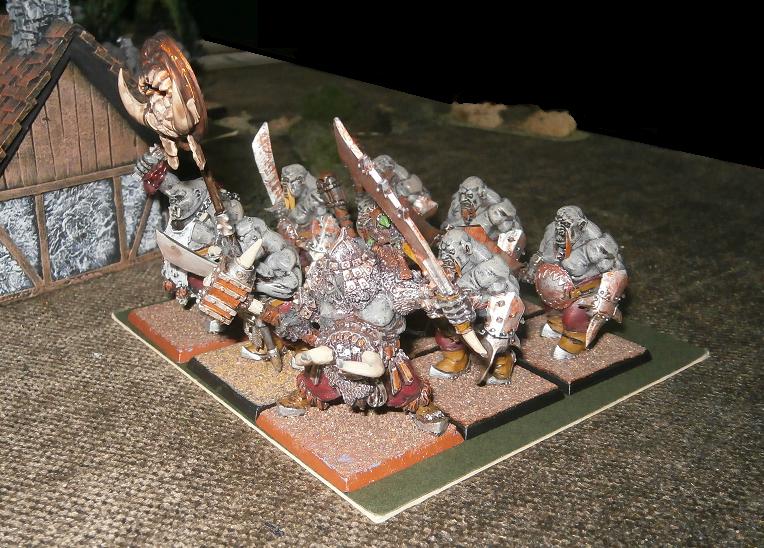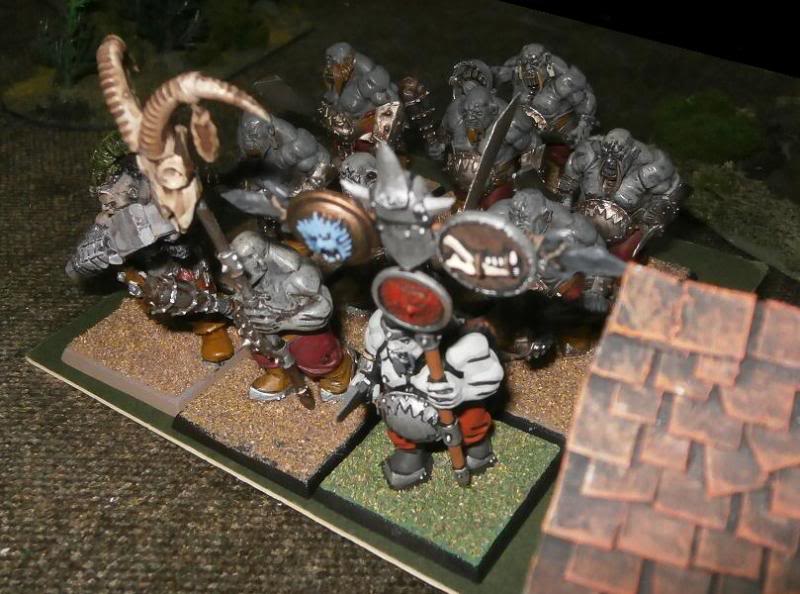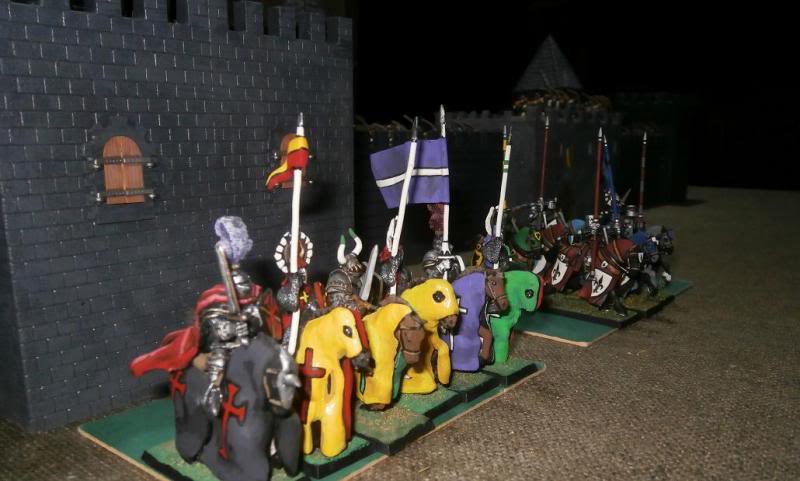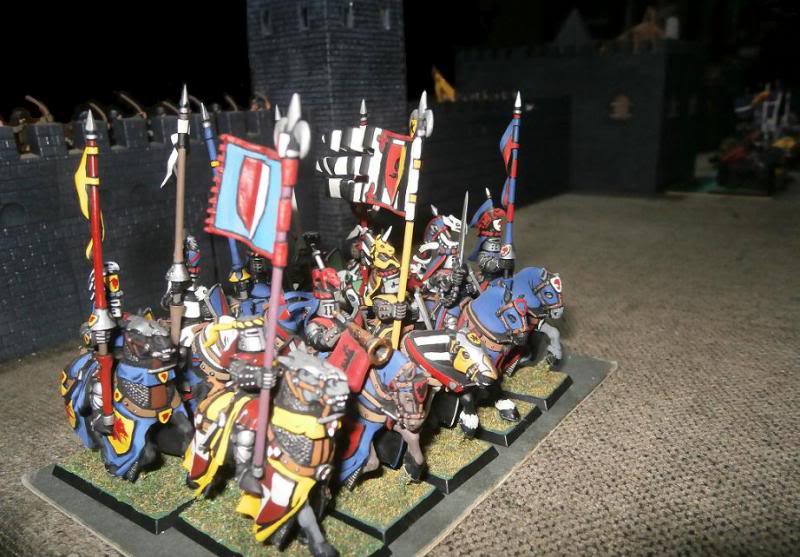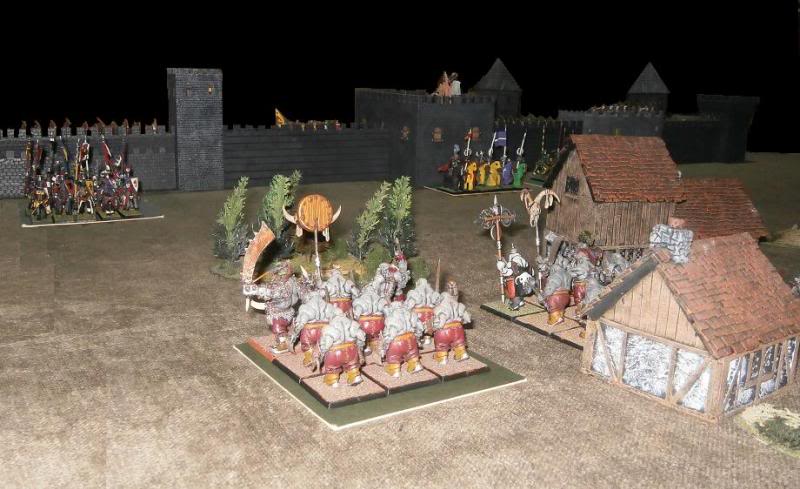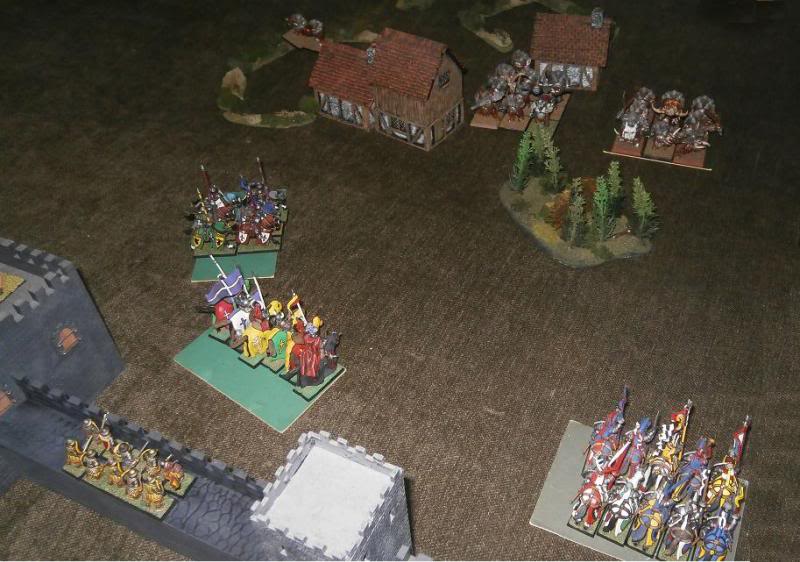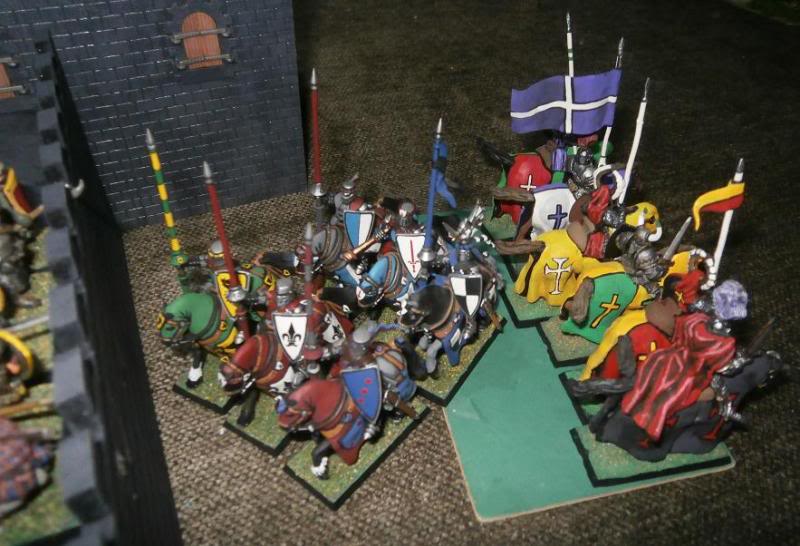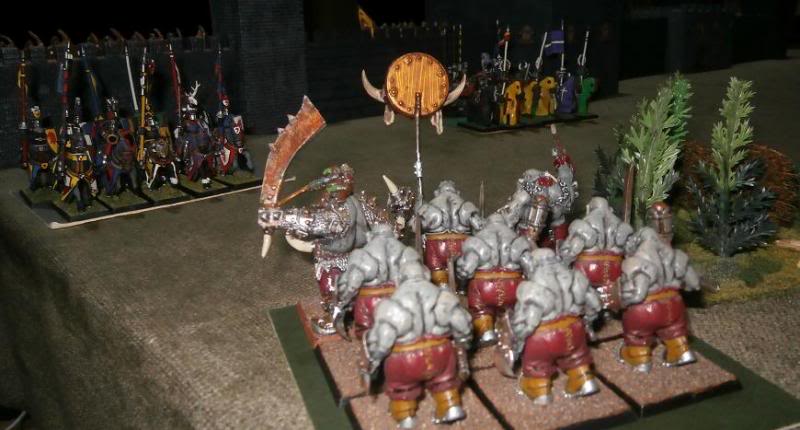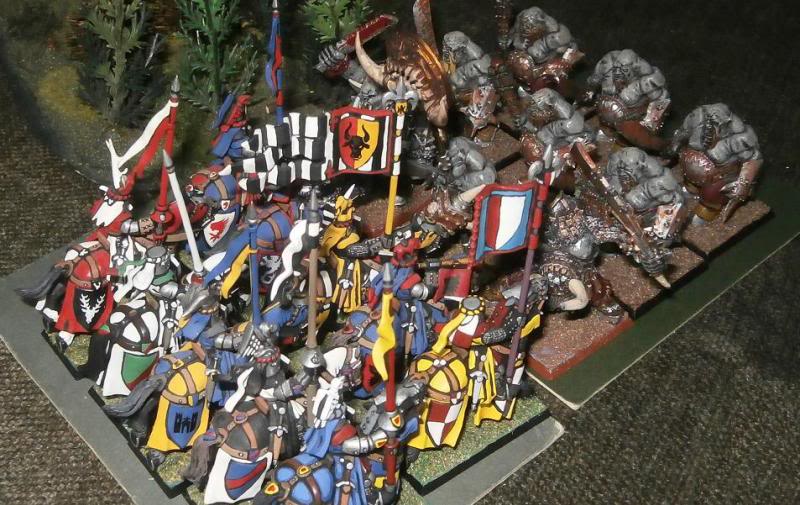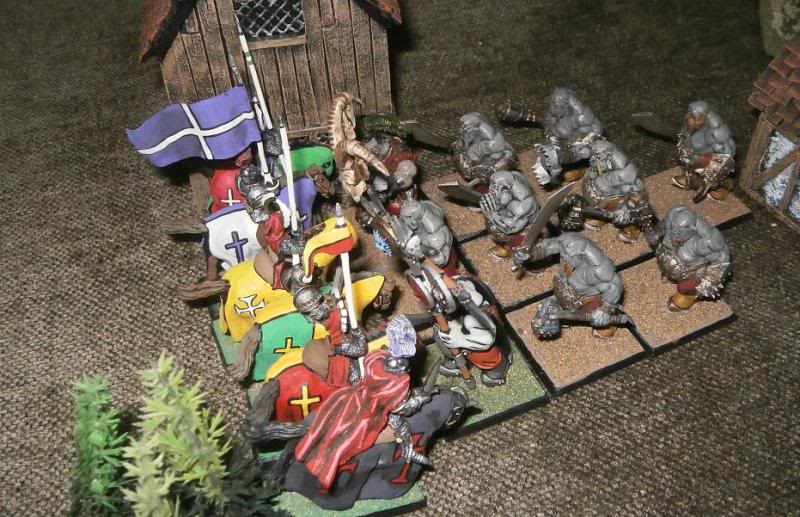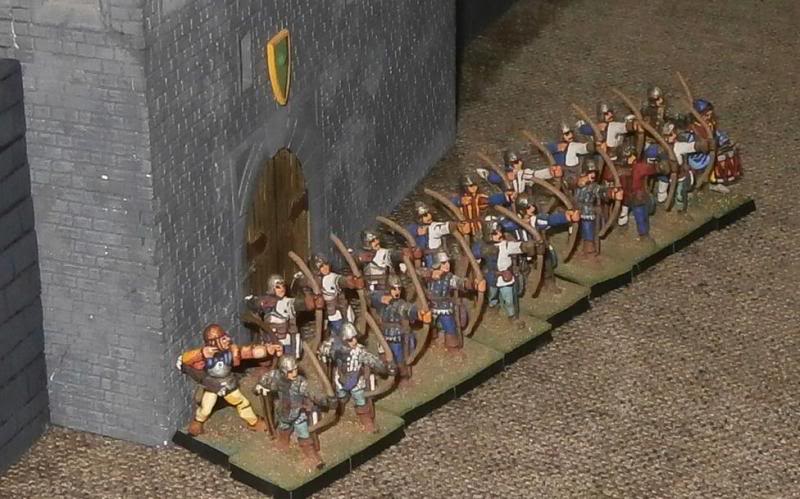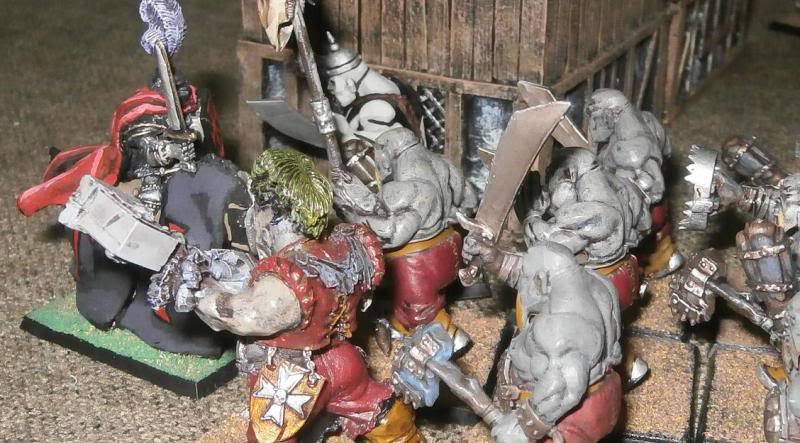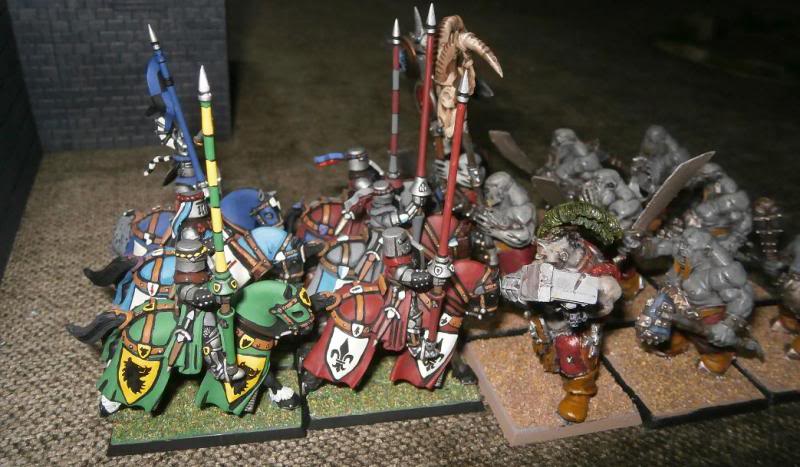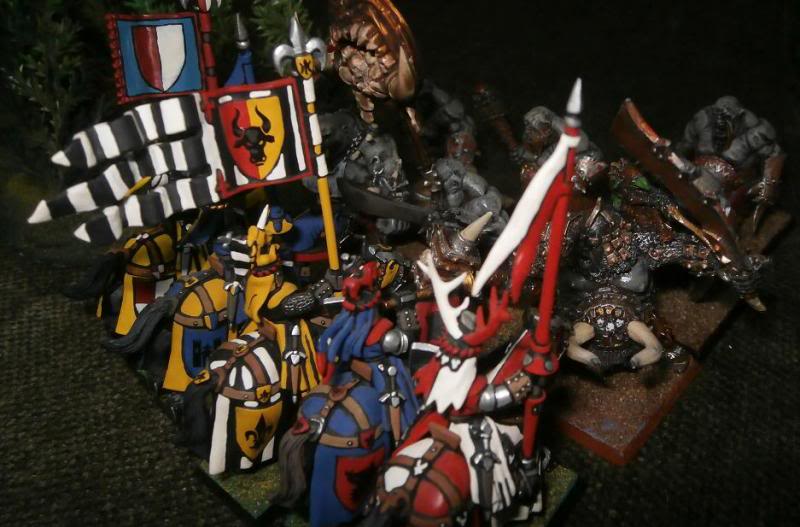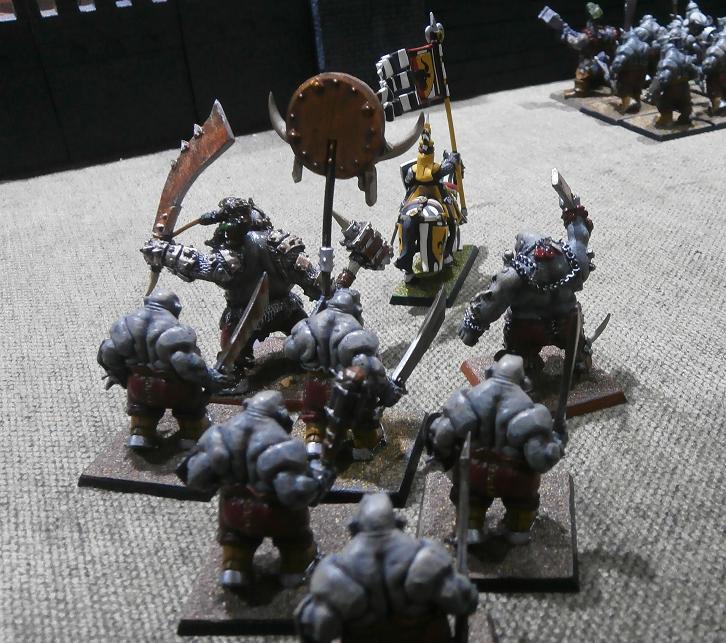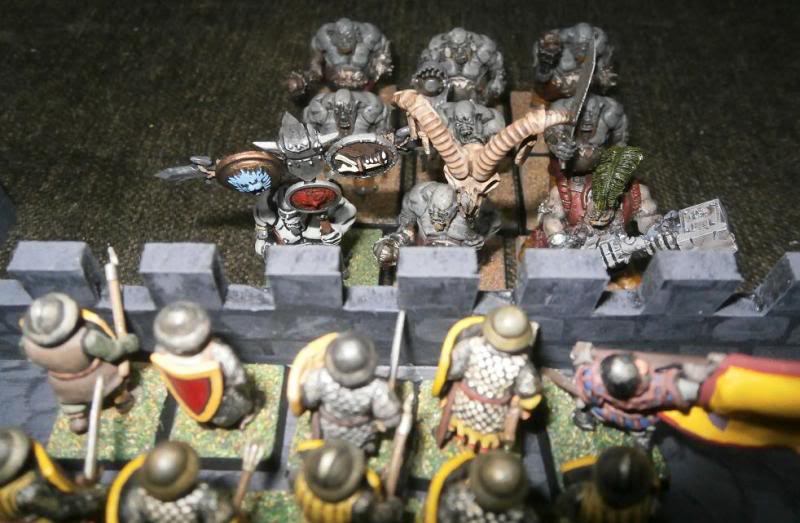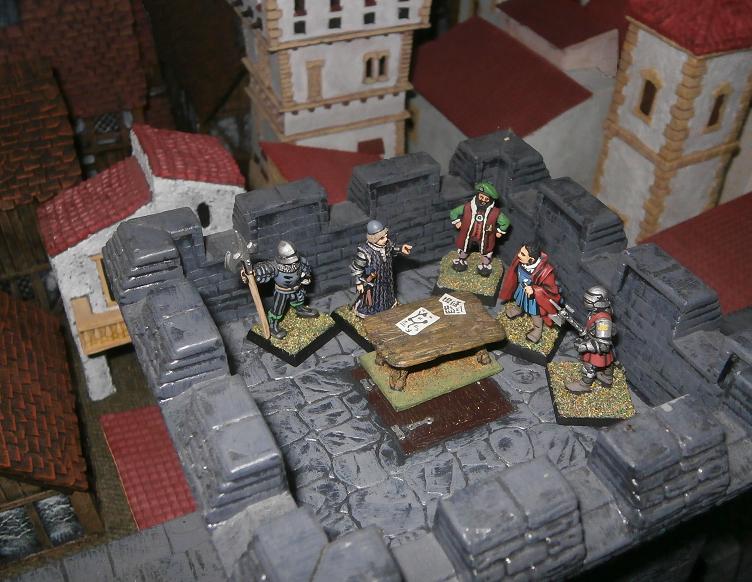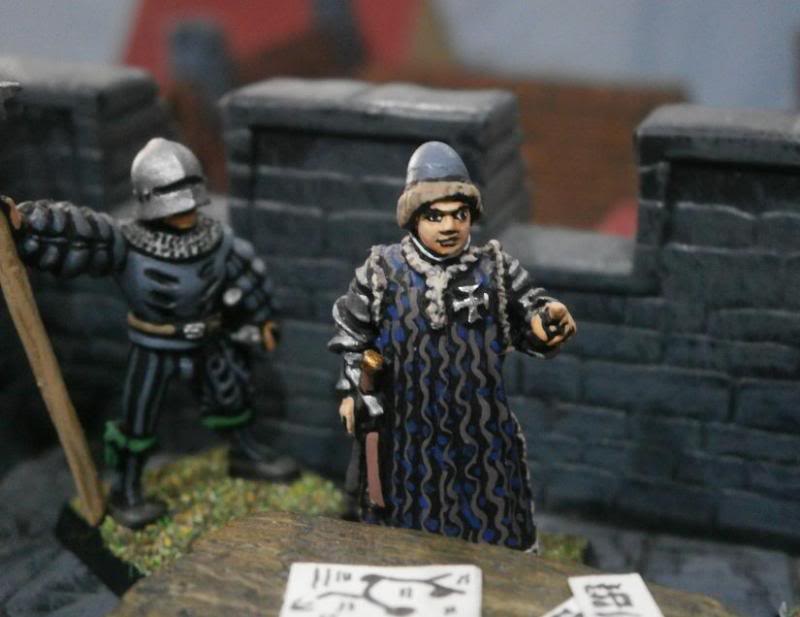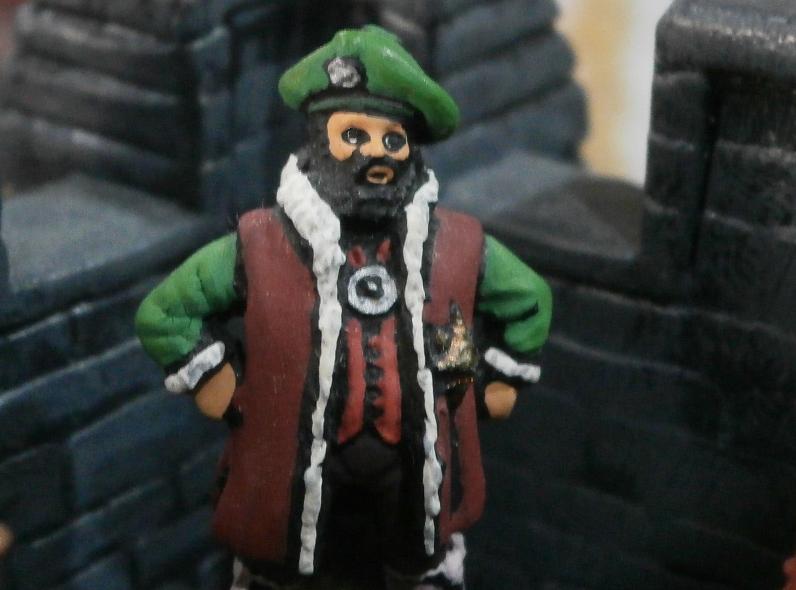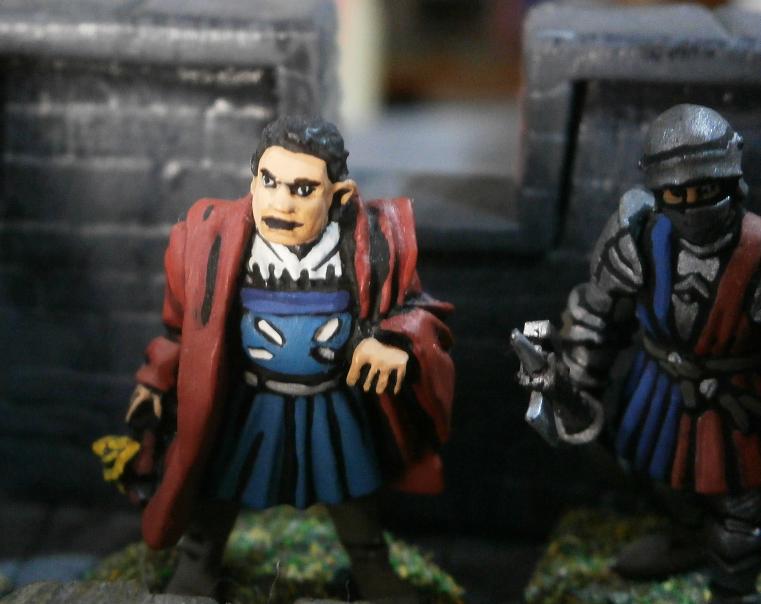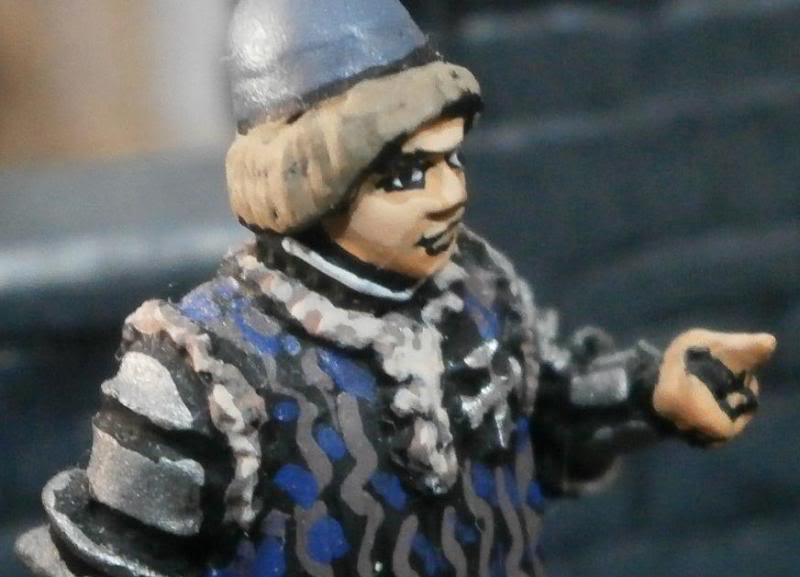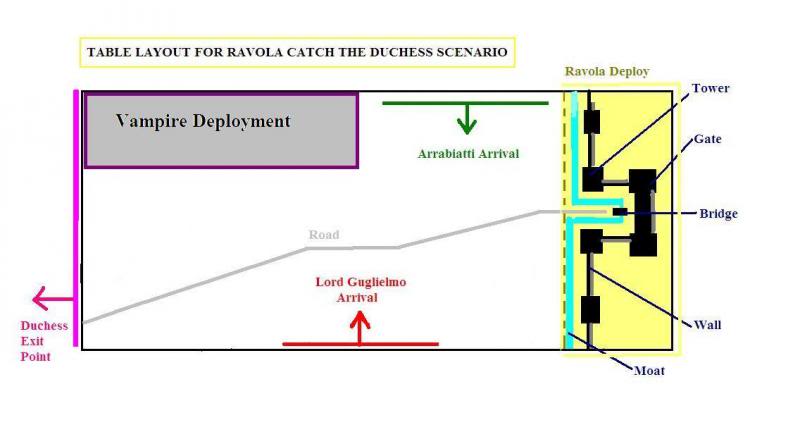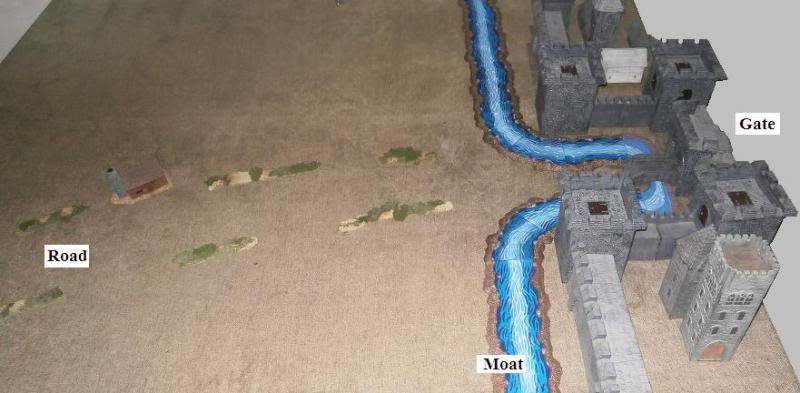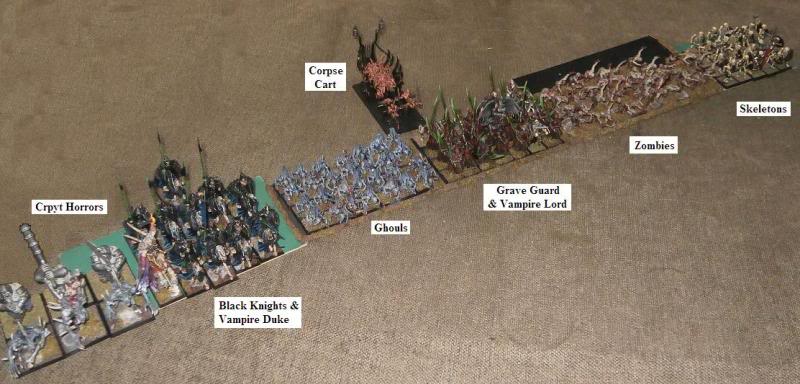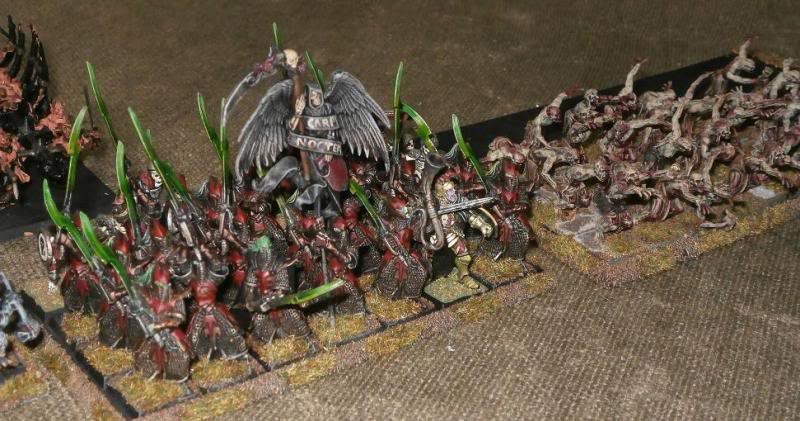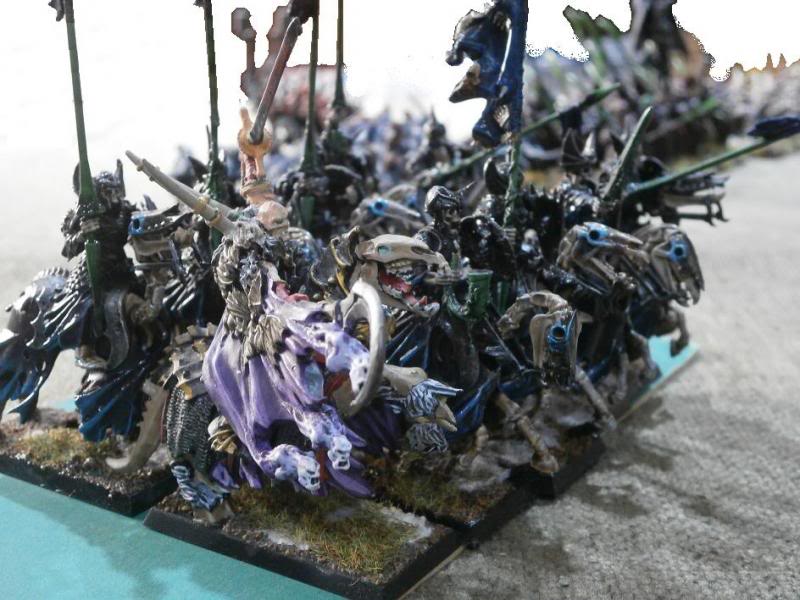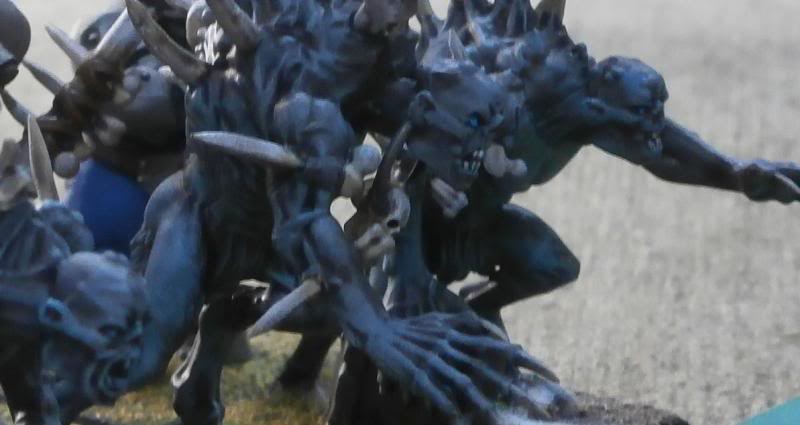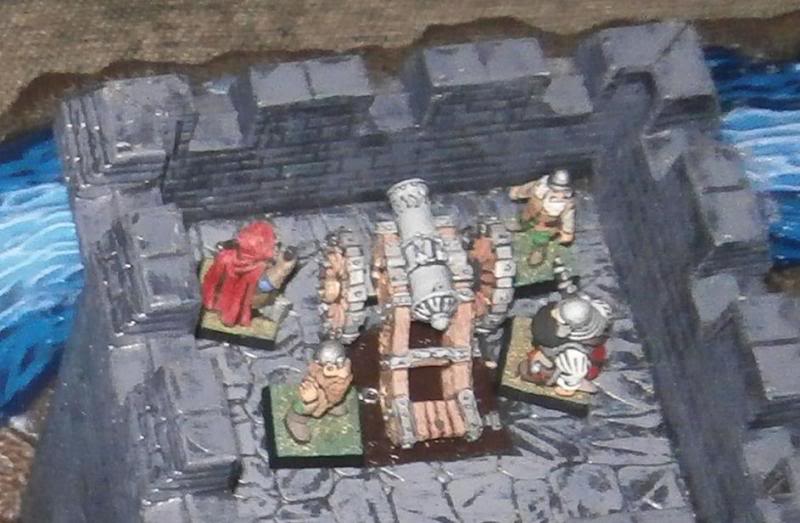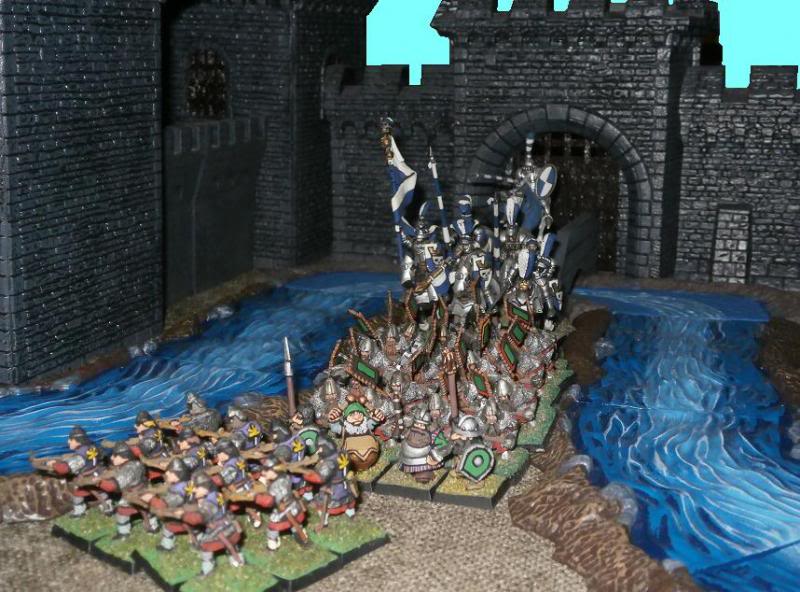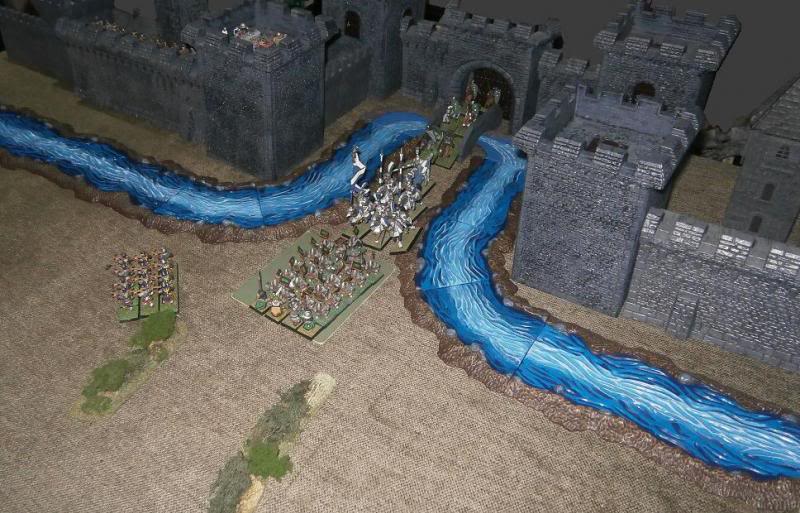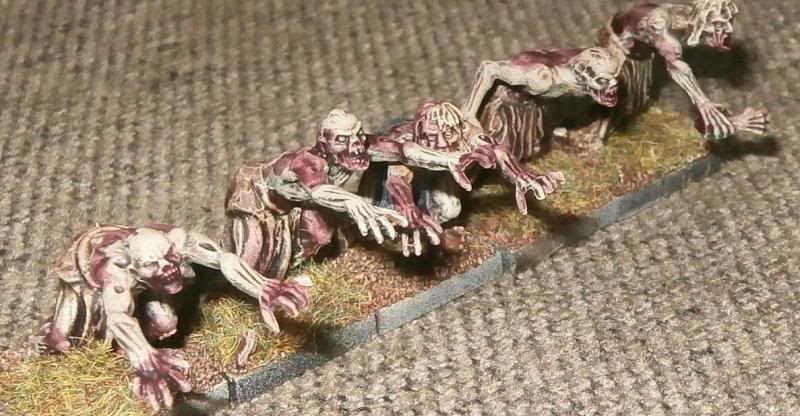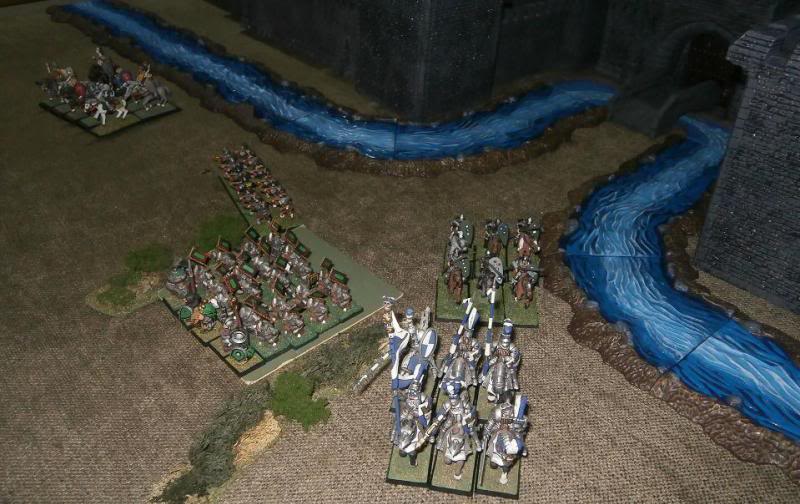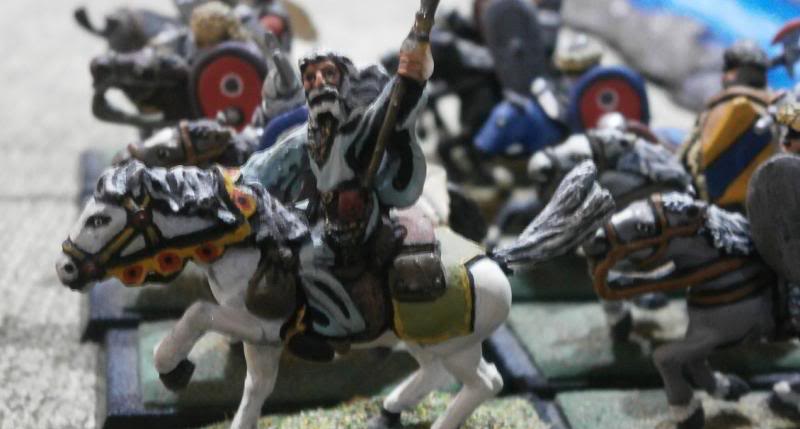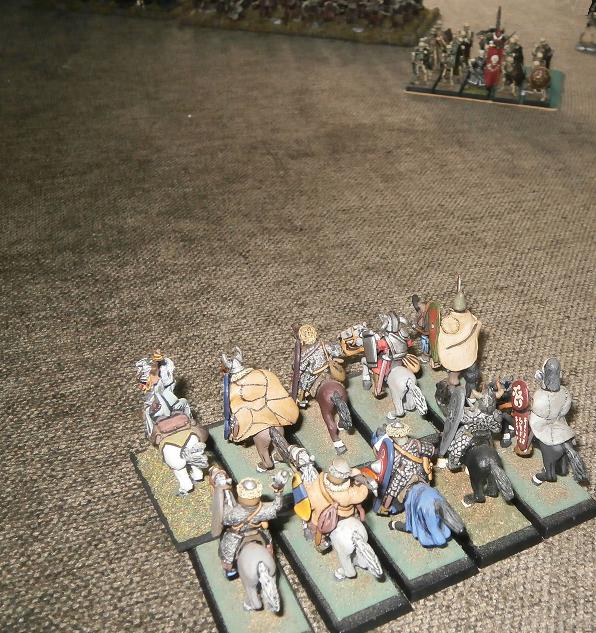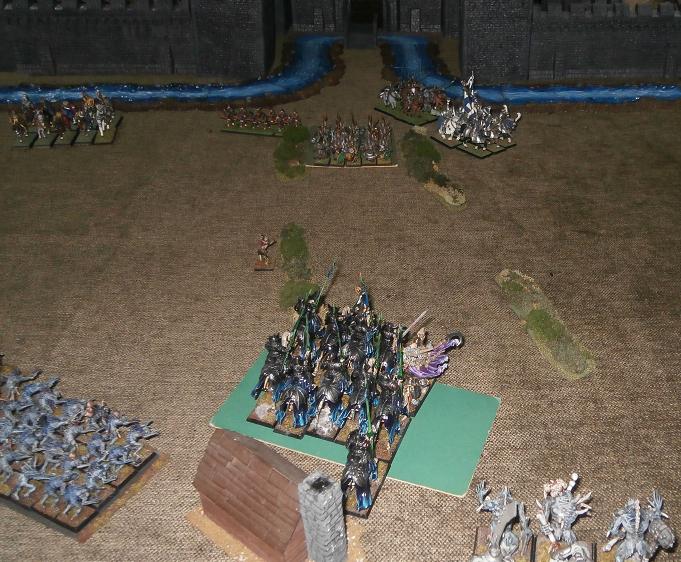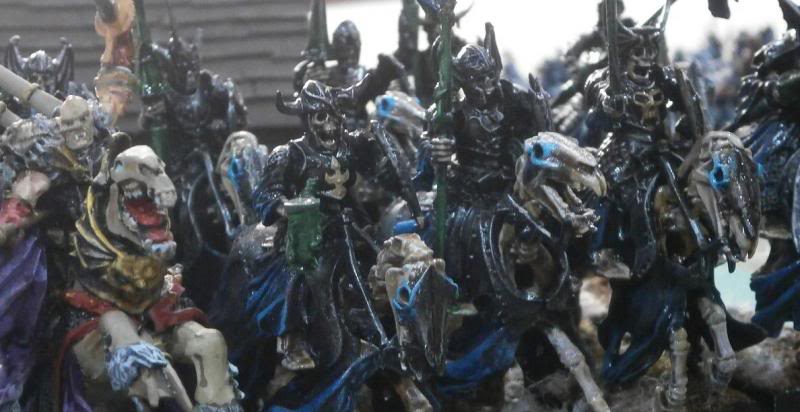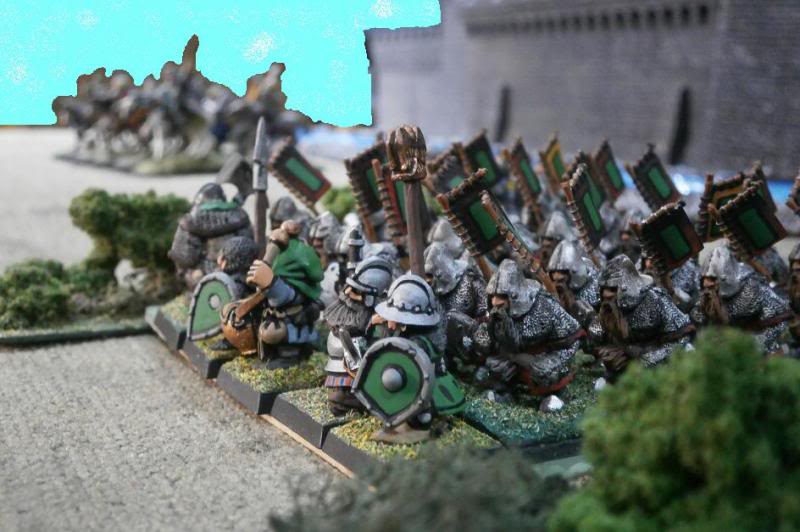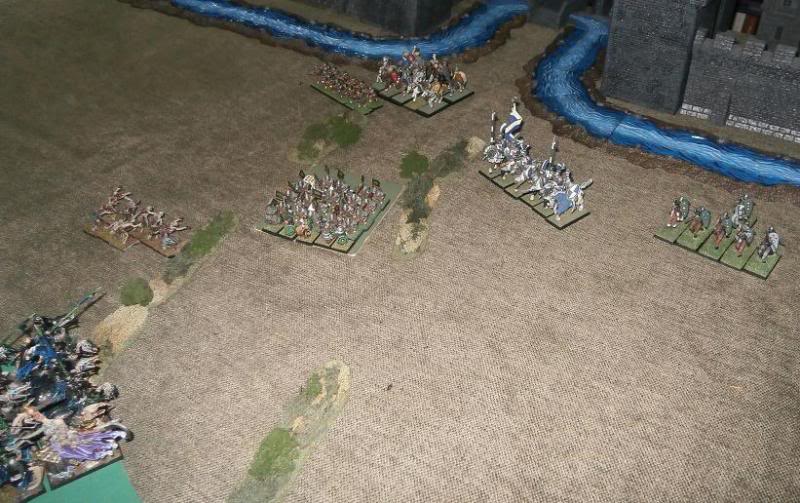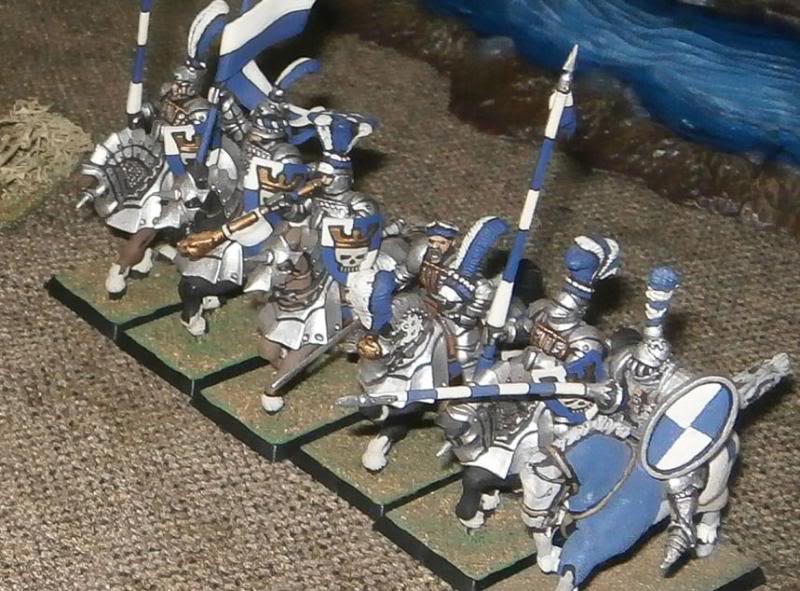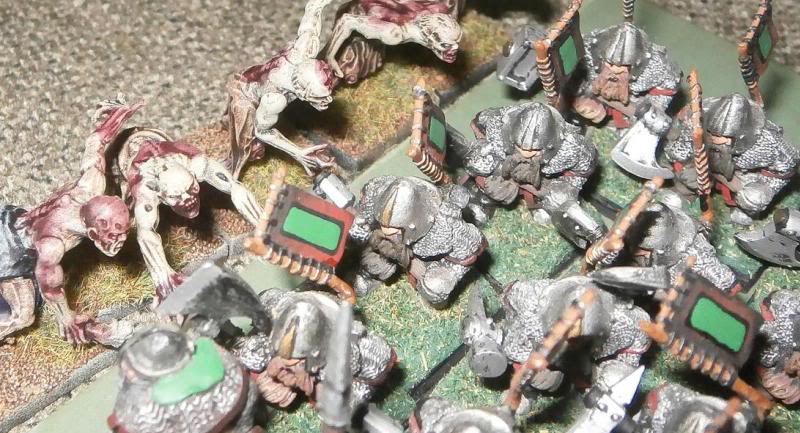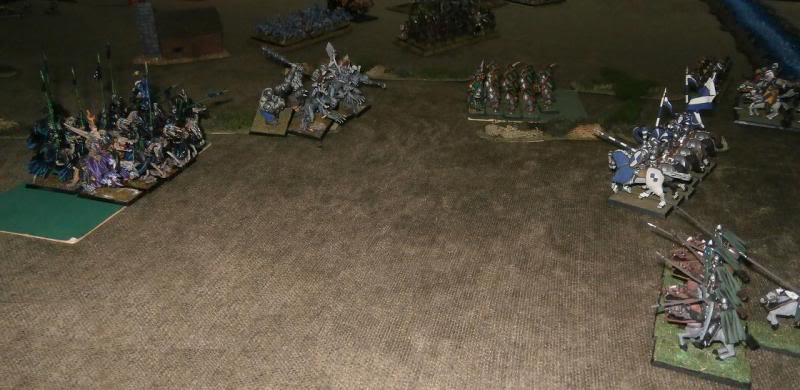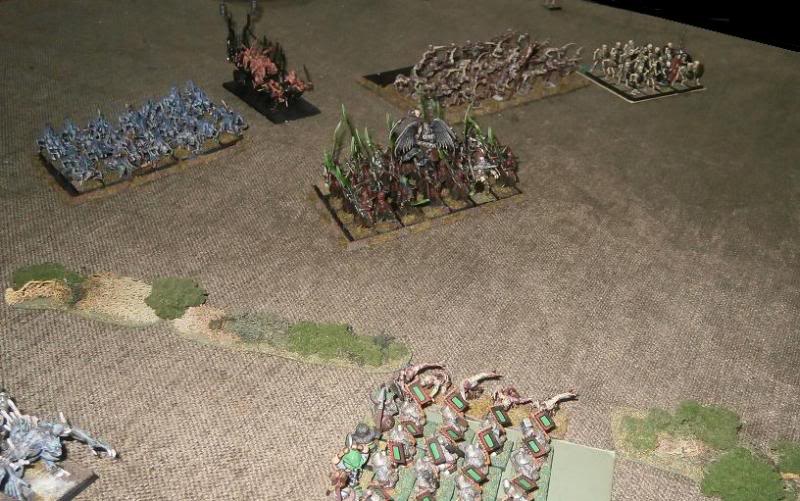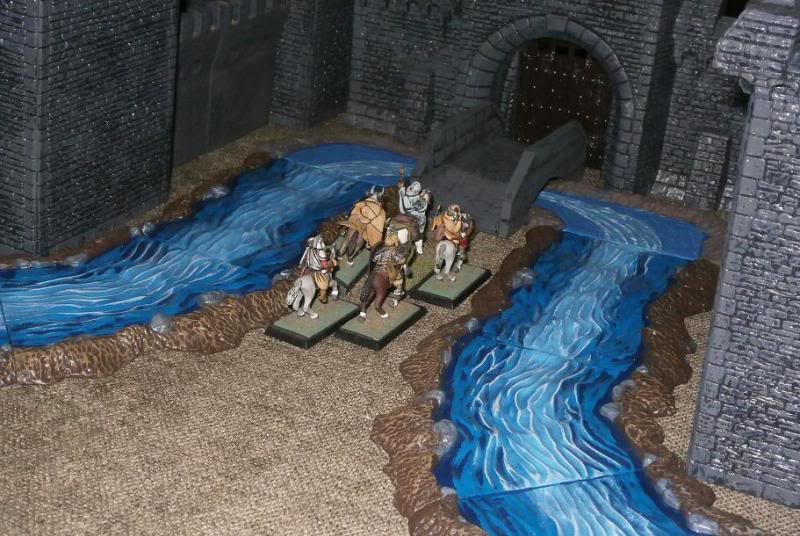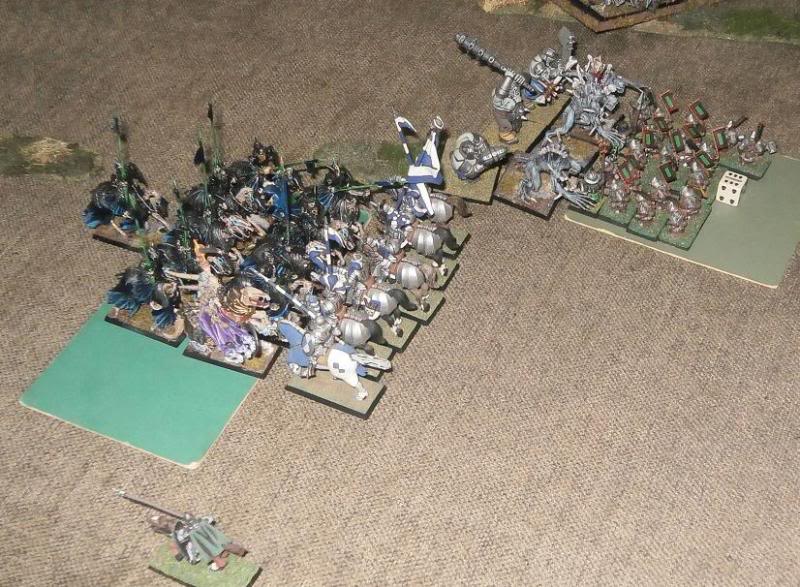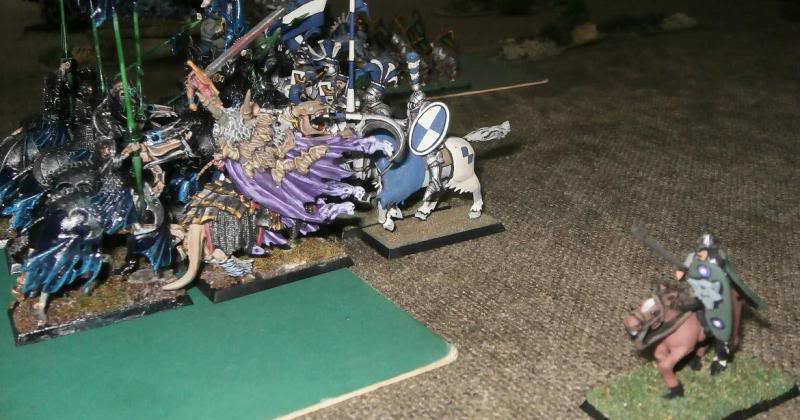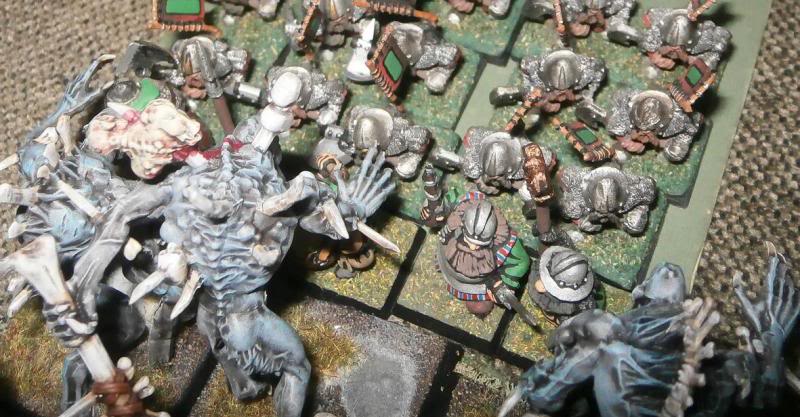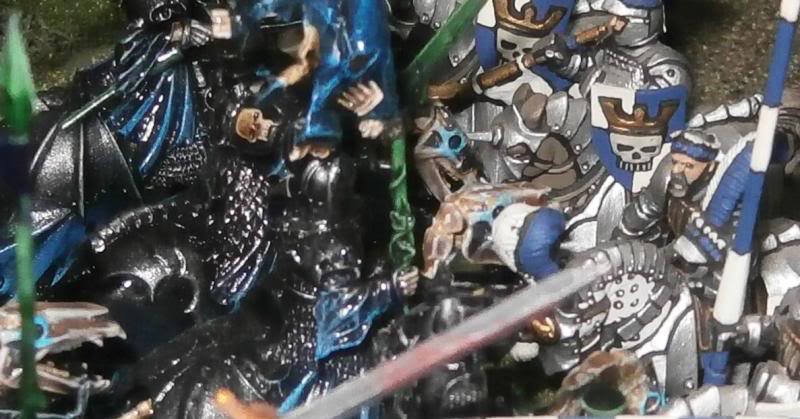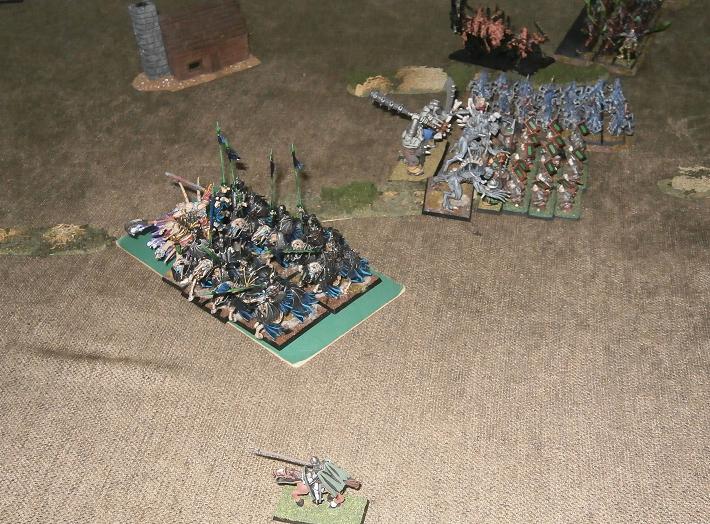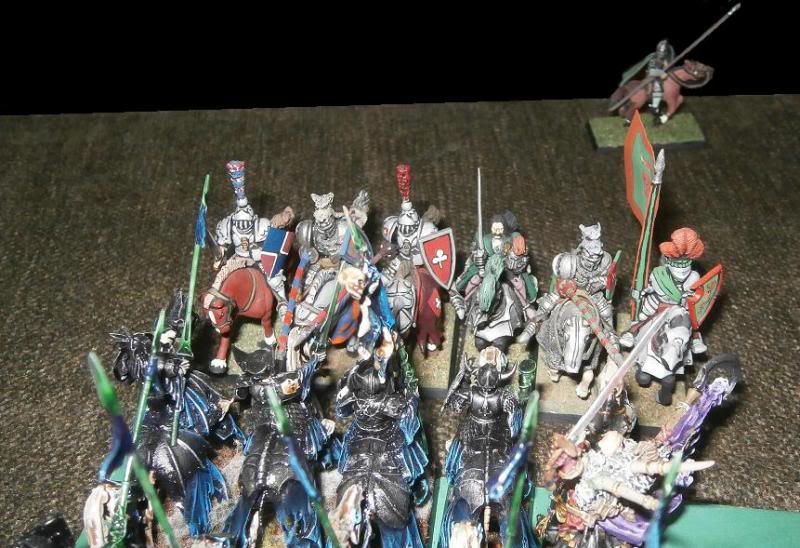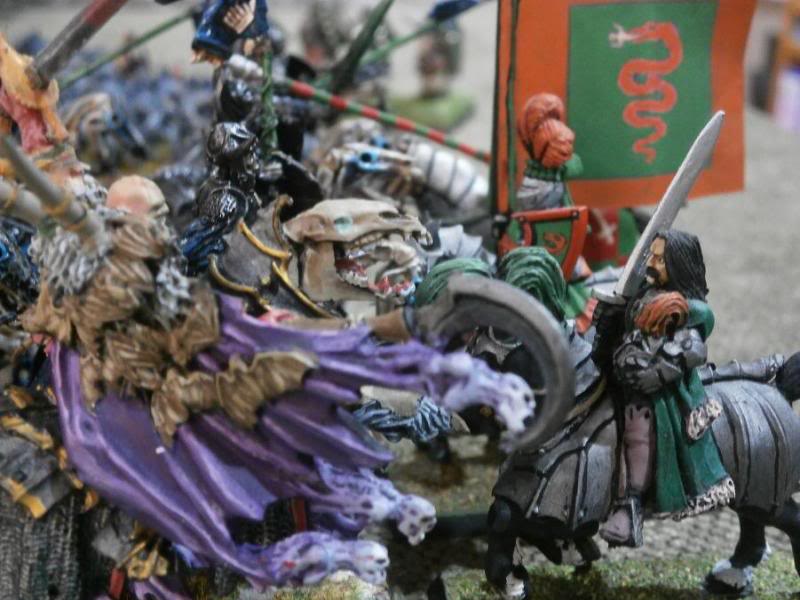Padre
Lord
Tilea, IC 2401
To see the new, 'improved' version of the campaign, where the earlier pictures are being replaced with better ones, and in which I am editing the posts to improve the text, then please take a look at my own website ...
http://www.bigsmallworlds.com
To see the slowly growing video version of this campaign (which spurred me to edit and rework the pictures) see my YouTube channel at ...
https://www.youtube.com/channel/UCr1dPOO-E4QxPhRozk7lkVg
The Living
It has been a long day already, thought Biagino, and it is not yet ended. His sandaled feet ached, his grey, woollen cassock chafed and his worries refused to be forgotten. Unused to such exercise, his whole frame, of which there was a surfeit, complained in a variety of fashions from the neck down. As a priest of Morr he had rarely been asked to hurry, and although often expected to stand for hours on end when officiating the internment of the rich and powerful, church grounds were not usually as uneven as this present path. He did not complain, however, as he did not wish to appear weak. Considering what they were escaping from, it simply would not do for a Morrite cleric to show fear. If anyone in the company was expected stand this test, it was him.
The company had been wordless now for the best part of an hour, ever since they entered the woods - the silent trees had been all that was needed to tip everyone into their own private thoughts. Not that their passage was quiet. The loads upon the mules’ backs clattered and jingled, the hooves thudded as they threw up clods of clayey soil, whilst the armoured plates on the four knights and their mounts at the head of little column added another clinking and scraping layer of sound. With trees growing thickly on both sides of the track the noise was muffled, and so less likely to be heard elsewhere in the woods.
They were currently somewhere south of Ebino, having already crossed the river there. They had not stayed upon the road, Lord Guglielmo preferring instead to move parallel to it along a much lesser used track. Fearing that the evil power now ruling Miragliano might already reach this far, he had decided it was best not to make things too easy for the foe by travelling openly along the obvious and well-trod route. And so now they traversed through rarely visited woods.
Suddenly, the man walking beside Biagino, a tall servant called Bertoldo who swaggered along with a woodsman’s axe on his shoulders as if it were a weapon for battle and he himself were a soldier, spoke.
“We ain’t exactly what you’d call an army, are we?”
His voice was oddly discordant with the mood of the party, more like a comment made on a quiet afternoon at an alehouse table. “I mean, four knights – one a Lord, I grant you – a pair of squires and us lot.”
One of the mules behind them seemed to take exception to Bertoldo’s unexpected words and brayed in the peculiar manner of such beasts, pulling stubbornly on his rope.
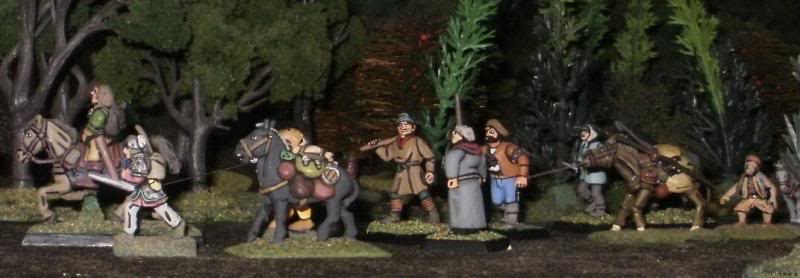
Biagino frowned. “I can assure you, even though I walk here at your side, and freely admit to having supped with you and some of the other servants on occasion, that I am not, as you say, one of you lot. I am an ordained priest of Morr, ‘father’ not ‘brother’, and would be grateful if you address me as such.”
The priest thought that making such a comment would prove that he too was similarly unperturbed by their present situation. Such subtlety was wasted on the Bertoldo, however, who simply nodded absently, as if only half listening.
“Not an army at all,” he repeated, dreamily.
“’Not an army at all, father’,” corrected Biagano half-heartedly, already losing interest in pressing the point concerning his status. “Why?” he asked instead, “Were you expecting an army? We are heading away from trouble, at least for now, not towards it. We are certainly not looking to fight a battle. Or I should say, we are expecting to fight a battle, but only when Lord Guglielmo has obtained an army. Until then, we are merely what we are.”
“Well if we ain’t an army,” said Bertoldo, pointing forwards, "then why is noble Sir Benedetto carrying Duke Alessandro’s battle standard?”
Up ahead, riding beside Lord Guglielmo, Sir Benedetto was indeed carrying the Sforta standard, green within an orange border, emblazoned with the image of a monstrous, coiled serpent in the act of consuming a naked man.
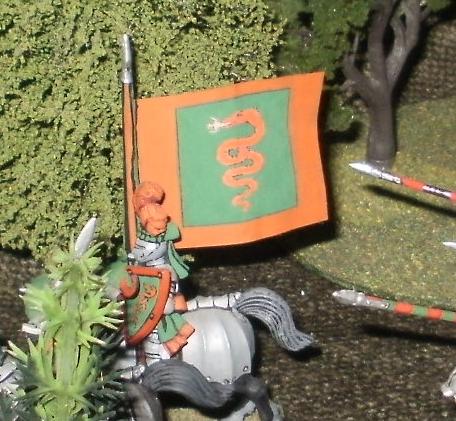
“A banner can be carried by one man,” Biagino answered, somewhat confused. “A knight at that. It doesn’t have to be at the head of an army.”
“I suppose not,” yielded Bertoldo, his subsequent intake of breath pregnant with another question. The priest did not have to wait long. “So why are we carrying Duke Alessandro’s banner, when he is our enemy?”
“Alessandro is now our enemy, of that there is no doubt. He can never be otherwise, for he can never be cured of what he has become, only destroyed. But he is no longer duke.”
That got Bertoldo’s attention. He looked at Biagino with real confusion writ across his face.
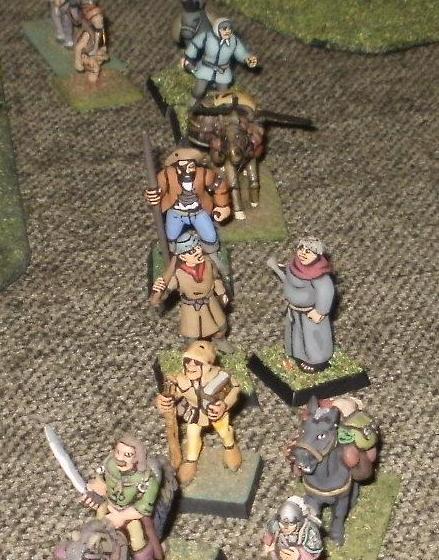
“Duke Alessandro is dead,” continued the priest. “Assuming his son is dead too, which seems certain from the reports, then Lord Guglielmo is duke. By rights, the banner is his now.”
“Never thought of that,” admitted the servant. “The duke is dead.”
“And that is why the duke has become our enemy. The worst wickedness in the eyes of Morr is that of vampires, for not only is their vile existence a sinful corruption of all that is right, but they then add insult to injury by raising the dead to serve them.”
“Of that I have never had any doubt, father,” said Bertoldo. “Their naughtiness surely surpasses everyone else’s. Yet … if Duke Alessandro were to command us now, his lawful subjects…”
“We were his subjects, before. But that which speaks with the duke’s voice now is not the duke. Duke Alessandro is gone, supplanted by the demonic spirit that now inhabitants his animated corpse. We owe his corpse no loyalty, only respect. And all chance to show that respect has been taken from us by the demon. That which now calls itself the duke of Miragliano is our enemy, and is indeed the enemy of all mankind. He is a blasphemy, a foul corruption mocking Morr.”
Bertoldo smiled, as if his dreamy musings had quite suddenly turned to happiness. “So we’re not traitors, nor thieves, nor even shirking our duties,” he exclaimed.
“No,” agreed Biagino. “We were once and yet still remain good and loyal subjects …”
“… of the living duke,” said Bertoldo, finishing Biagino’s words for him.
A few moments passed, just enough to make the priest begin to believe the servant was satisfied and might well fall silent once more.
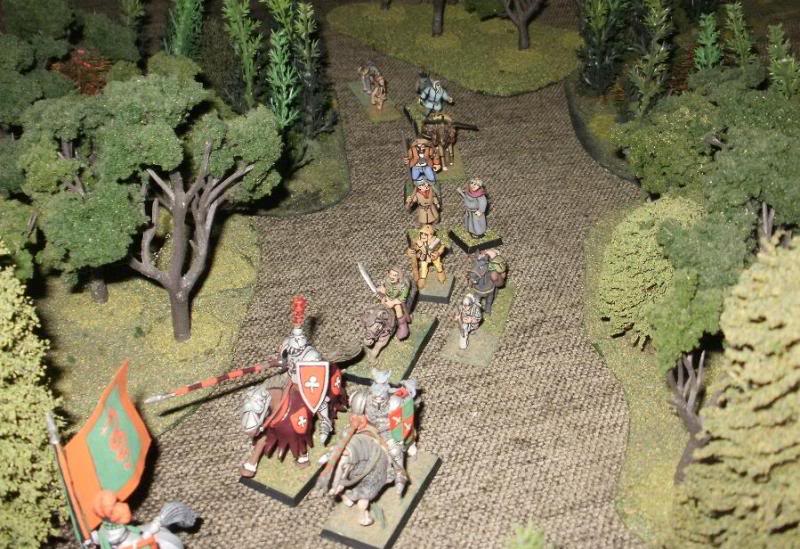
Then Bertoldo piped up again.
“You know the duke would live a lot longer if we just carried on southwards, forgot the whole raising an army business and settled down somewhere safe.”
Biagino did not know where to begin. Losing the will to explain the matter further, not least to a mere servant such as Bertoldo, he was sorely tempted simply to tell the man to hold his tongue, then perhaps to lecture a little upon a servant’s place in the world. But then he remembered his own father had been little better than Bertoldo in station, and the thought was enough to make him try again.
“First, if the duke were to do as you suggest then he would be duke merely in title. Is a shepherd without a flock truly a shepherd?”
“But Duke Guglielmo never had a flock,” answered Bertoldo.
An answer was not what Biagino had intended at all. His question had been rhetorical.
Bertoldo obviously had no idea. “He never ruled Miragliano. He just governed Udolpho in his uncle’s name.”
Trying but failing to hide his exasperation, the priest asked, "Then answer me this. Do you call a shepherd who has no flock and never had a flock before, a shepherd?”
“Probably not,” said Bertoldo. “I’d say he was just a man who wants to be a shepherd.”
Biagino let the thought take a proper root in Bertoldo’s mind for a moment. Then continued, “Don’t get me wrong. Lord Guglielmo is the rightful possessor of the title. He has the blood, and was next in line to inherit. He is by all that is right and lawful the duke. It helps, however, if he has something to be duke of!”
“I have it, father,” said Bertoldo, as if he had just managed to secure a slippery fish that had been writhing in his hands close to escape. “And second?”
Only momentarily satisfied at his apparent success at explaining things, this last comment had Biagino confused.
“Second?”
“You said ‘first’,” explained the servant, “so I thought there’d be a second.”
Gods, but I am tired. “There is a second, though it ought to be first in the minds of all men of faith and sense. Second, it is the duty of all men, Tileans in particular I would say, to fight wickedness and evil. If everyone went south and settled as you so bravely suggest, then who would there be to defend against our enemy? We all die. There is no running away from that. If we do not fight and defeat that which would steal our souls, then we are all doomed.”
“Doomed,” echoed Berdoldo.
At last, he fell silent again. Biagino was left wondering whether his attempts to explain had failed altogether to reassure the servant. Then that concern was washed away by another. Oh, my aching feet.
...
At the head of the column, Duke Guglielmo rode behind a blunderbuss armed coachman. There was no coach.
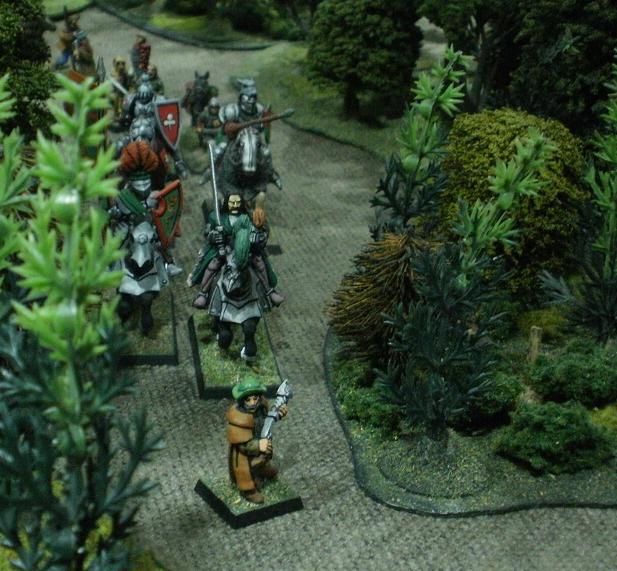
He carried his helm beneath his arm, the better to see the woods around him; his sword unsheathed, ready for a fight; and he bore a fixed expression, brooding and stern. He was like unto an equestrian statue, but seated upon a living horse.
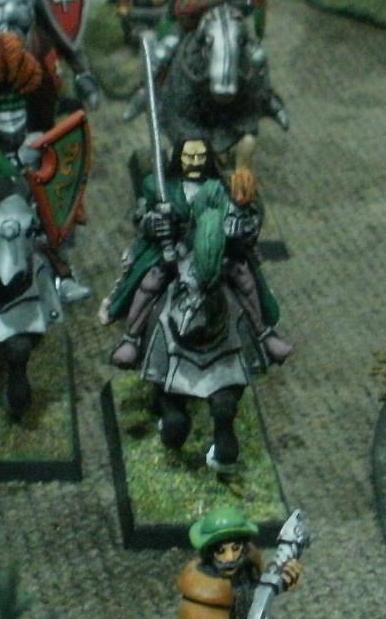
Inside his mind, however, there was turmoil.
…………………………………………………………………………………………
Notes:
There are (now) six players. The characters in the piece above are 'non-player' characters (NPCs). They should appear in later stories too If a player or an event somehow kills them though, then they won't! I will do these illustrated story pieces from NPCs' viewpoints, interspersed with battle reports, modeling reports and various other pieces. It will hopefully be a vivid way for the six players to gain insights and a feel for the world. I can't really do stuff from the players' perspective as they are playing the game, I am not them, and most important they may not want the other players knowing what they're up to!
The Vampire Duke Allessandro who is mentioned in the above piece is one of the six players. The player is busy painting his army. He once sold an entire VC army, a few years ago, so now he is painting a new one! Me, I've got scenery to make and mercenaries to paint. Lots of mercenaries.
This story (and the next) serve as prologues, I suppose. Then I will continue with more stories and the battle reports - as I am running this campaign (like the All That Glitters sequence) this will be more connected and comprehensible, with a full background and a much clearer picture of events, than the campaigns I merely took part in and wrote from my own character's perspectives. As I write this note this campaign is ongoing, and so at some point the (daily) posts will slow down to my real time production rate. I am current'y half way through a battle report.
Do please feel free to comment, as I might get ideas and such like that way that I can incorporate.
To see the new, 'improved' version of the campaign, where the earlier pictures are being replaced with better ones, and in which I am editing the posts to improve the text, then please take a look at my own website ...
http://www.bigsmallworlds.com
To see the slowly growing video version of this campaign (which spurred me to edit and rework the pictures) see my YouTube channel at ...
https://www.youtube.com/channel/UCr1dPOO-E4QxPhRozk7lkVg
The Living
It has been a long day already, thought Biagino, and it is not yet ended. His sandaled feet ached, his grey, woollen cassock chafed and his worries refused to be forgotten. Unused to such exercise, his whole frame, of which there was a surfeit, complained in a variety of fashions from the neck down. As a priest of Morr he had rarely been asked to hurry, and although often expected to stand for hours on end when officiating the internment of the rich and powerful, church grounds were not usually as uneven as this present path. He did not complain, however, as he did not wish to appear weak. Considering what they were escaping from, it simply would not do for a Morrite cleric to show fear. If anyone in the company was expected stand this test, it was him.
The company had been wordless now for the best part of an hour, ever since they entered the woods - the silent trees had been all that was needed to tip everyone into their own private thoughts. Not that their passage was quiet. The loads upon the mules’ backs clattered and jingled, the hooves thudded as they threw up clods of clayey soil, whilst the armoured plates on the four knights and their mounts at the head of little column added another clinking and scraping layer of sound. With trees growing thickly on both sides of the track the noise was muffled, and so less likely to be heard elsewhere in the woods.
They were currently somewhere south of Ebino, having already crossed the river there. They had not stayed upon the road, Lord Guglielmo preferring instead to move parallel to it along a much lesser used track. Fearing that the evil power now ruling Miragliano might already reach this far, he had decided it was best not to make things too easy for the foe by travelling openly along the obvious and well-trod route. And so now they traversed through rarely visited woods.
Suddenly, the man walking beside Biagino, a tall servant called Bertoldo who swaggered along with a woodsman’s axe on his shoulders as if it were a weapon for battle and he himself were a soldier, spoke.
“We ain’t exactly what you’d call an army, are we?”
His voice was oddly discordant with the mood of the party, more like a comment made on a quiet afternoon at an alehouse table. “I mean, four knights – one a Lord, I grant you – a pair of squires and us lot.”
One of the mules behind them seemed to take exception to Bertoldo’s unexpected words and brayed in the peculiar manner of such beasts, pulling stubbornly on his rope.

Biagino frowned. “I can assure you, even though I walk here at your side, and freely admit to having supped with you and some of the other servants on occasion, that I am not, as you say, one of you lot. I am an ordained priest of Morr, ‘father’ not ‘brother’, and would be grateful if you address me as such.”
The priest thought that making such a comment would prove that he too was similarly unperturbed by their present situation. Such subtlety was wasted on the Bertoldo, however, who simply nodded absently, as if only half listening.
“Not an army at all,” he repeated, dreamily.
“’Not an army at all, father’,” corrected Biagano half-heartedly, already losing interest in pressing the point concerning his status. “Why?” he asked instead, “Were you expecting an army? We are heading away from trouble, at least for now, not towards it. We are certainly not looking to fight a battle. Or I should say, we are expecting to fight a battle, but only when Lord Guglielmo has obtained an army. Until then, we are merely what we are.”
“Well if we ain’t an army,” said Bertoldo, pointing forwards, "then why is noble Sir Benedetto carrying Duke Alessandro’s battle standard?”
Up ahead, riding beside Lord Guglielmo, Sir Benedetto was indeed carrying the Sforta standard, green within an orange border, emblazoned with the image of a monstrous, coiled serpent in the act of consuming a naked man.

“A banner can be carried by one man,” Biagino answered, somewhat confused. “A knight at that. It doesn’t have to be at the head of an army.”
“I suppose not,” yielded Bertoldo, his subsequent intake of breath pregnant with another question. The priest did not have to wait long. “So why are we carrying Duke Alessandro’s banner, when he is our enemy?”
“Alessandro is now our enemy, of that there is no doubt. He can never be otherwise, for he can never be cured of what he has become, only destroyed. But he is no longer duke.”
That got Bertoldo’s attention. He looked at Biagino with real confusion writ across his face.

“Duke Alessandro is dead,” continued the priest. “Assuming his son is dead too, which seems certain from the reports, then Lord Guglielmo is duke. By rights, the banner is his now.”
“Never thought of that,” admitted the servant. “The duke is dead.”
“And that is why the duke has become our enemy. The worst wickedness in the eyes of Morr is that of vampires, for not only is their vile existence a sinful corruption of all that is right, but they then add insult to injury by raising the dead to serve them.”
“Of that I have never had any doubt, father,” said Bertoldo. “Their naughtiness surely surpasses everyone else’s. Yet … if Duke Alessandro were to command us now, his lawful subjects…”
“We were his subjects, before. But that which speaks with the duke’s voice now is not the duke. Duke Alessandro is gone, supplanted by the demonic spirit that now inhabitants his animated corpse. We owe his corpse no loyalty, only respect. And all chance to show that respect has been taken from us by the demon. That which now calls itself the duke of Miragliano is our enemy, and is indeed the enemy of all mankind. He is a blasphemy, a foul corruption mocking Morr.”
Bertoldo smiled, as if his dreamy musings had quite suddenly turned to happiness. “So we’re not traitors, nor thieves, nor even shirking our duties,” he exclaimed.
“No,” agreed Biagino. “We were once and yet still remain good and loyal subjects …”
“… of the living duke,” said Bertoldo, finishing Biagino’s words for him.
A few moments passed, just enough to make the priest begin to believe the servant was satisfied and might well fall silent once more.

Then Bertoldo piped up again.
“You know the duke would live a lot longer if we just carried on southwards, forgot the whole raising an army business and settled down somewhere safe.”
Biagino did not know where to begin. Losing the will to explain the matter further, not least to a mere servant such as Bertoldo, he was sorely tempted simply to tell the man to hold his tongue, then perhaps to lecture a little upon a servant’s place in the world. But then he remembered his own father had been little better than Bertoldo in station, and the thought was enough to make him try again.
“First, if the duke were to do as you suggest then he would be duke merely in title. Is a shepherd without a flock truly a shepherd?”
“But Duke Guglielmo never had a flock,” answered Bertoldo.
An answer was not what Biagino had intended at all. His question had been rhetorical.
Bertoldo obviously had no idea. “He never ruled Miragliano. He just governed Udolpho in his uncle’s name.”
Trying but failing to hide his exasperation, the priest asked, "Then answer me this. Do you call a shepherd who has no flock and never had a flock before, a shepherd?”
“Probably not,” said Bertoldo. “I’d say he was just a man who wants to be a shepherd.”
Biagino let the thought take a proper root in Bertoldo’s mind for a moment. Then continued, “Don’t get me wrong. Lord Guglielmo is the rightful possessor of the title. He has the blood, and was next in line to inherit. He is by all that is right and lawful the duke. It helps, however, if he has something to be duke of!”
“I have it, father,” said Bertoldo, as if he had just managed to secure a slippery fish that had been writhing in his hands close to escape. “And second?”
Only momentarily satisfied at his apparent success at explaining things, this last comment had Biagino confused.
“Second?”
“You said ‘first’,” explained the servant, “so I thought there’d be a second.”
Gods, but I am tired. “There is a second, though it ought to be first in the minds of all men of faith and sense. Second, it is the duty of all men, Tileans in particular I would say, to fight wickedness and evil. If everyone went south and settled as you so bravely suggest, then who would there be to defend against our enemy? We all die. There is no running away from that. If we do not fight and defeat that which would steal our souls, then we are all doomed.”
“Doomed,” echoed Berdoldo.
At last, he fell silent again. Biagino was left wondering whether his attempts to explain had failed altogether to reassure the servant. Then that concern was washed away by another. Oh, my aching feet.
...
At the head of the column, Duke Guglielmo rode behind a blunderbuss armed coachman. There was no coach.

He carried his helm beneath his arm, the better to see the woods around him; his sword unsheathed, ready for a fight; and he bore a fixed expression, brooding and stern. He was like unto an equestrian statue, but seated upon a living horse.

Inside his mind, however, there was turmoil.
…………………………………………………………………………………………
Notes:
There are (now) six players. The characters in the piece above are 'non-player' characters (NPCs). They should appear in later stories too If a player or an event somehow kills them though, then they won't! I will do these illustrated story pieces from NPCs' viewpoints, interspersed with battle reports, modeling reports and various other pieces. It will hopefully be a vivid way for the six players to gain insights and a feel for the world. I can't really do stuff from the players' perspective as they are playing the game, I am not them, and most important they may not want the other players knowing what they're up to!
The Vampire Duke Allessandro who is mentioned in the above piece is one of the six players. The player is busy painting his army. He once sold an entire VC army, a few years ago, so now he is painting a new one! Me, I've got scenery to make and mercenaries to paint. Lots of mercenaries.
This story (and the next) serve as prologues, I suppose. Then I will continue with more stories and the battle reports - as I am running this campaign (like the All That Glitters sequence) this will be more connected and comprehensible, with a full background and a much clearer picture of events, than the campaigns I merely took part in and wrote from my own character's perspectives. As I write this note this campaign is ongoing, and so at some point the (daily) posts will slow down to my real time production rate. I am current'y half way through a battle report.
Do please feel free to comment, as I might get ideas and such like that way that I can incorporate.



